SI Vault: Expansion Lightning shock with hot start as NHL comes to Tampa

This story originally appeared in the Nov. 2, 1992, issue of Sports Illustrated. Subscribe to the magazine here.
They don't jump out of their seats at Tampa Bay Lightning games to watch two players battling for the puck at center ice the way they did in Atlanta the last time the NHL launched a franchise in the South. They do, however, cheer just about everything else. A shot that comes within five feet of the net sends the crowd into a frenzy, and a routine save elicits an impassioned ohhhhh! When Sweet Home Alabama comes over the public-address system, the foot-stomping and caterwauling trigger seismic vibrations that rumble through Expo Hall. And when the Lightning strikes for a goal, better hang on to your hat.
No joke. After Chris Kontos scored for the third time in Tampa Bay’s home opener, on Oct. 7, a lone fan paid tribute to one of hockey’s most-honored traditions by flipping his cap over the boards and onto the ice. “You know what happened next?” says Lightning coach Terry Crisp. “The security guards tried to throw the guy out of the building.”
Powered by Kontos’s hat trick, Tampa Bay shocked the defending Campbell Conference champion Chicago Blackhawks 7–3. After a 3–2 victory over the Quebec Nordiques last Saturday night, the Lightning was 4-4-1, a surprising start for a first-year team. The Philadelphia Flyers, who went 31-32-11 in 1967-68, hold the record for the best finish by an expansion team. “It's been wild,” says Lightning general manager Phil Esposito, the Hall of Famer who has been the franchise’s driving force. “I’d be lying if I told you I thought we’d be this good.”
My Town, My Team: Tampa Bay Lightning fan is nuts about Bolts
Perhaps it’s the setting. Expo Hall’s dressing rooms open onto a view of palm trees gently swaying in the humid breeze. The Zamboni is parked outside, a few feet from a pond teeming with ducks. A mound of ice shavings melts rapidly beside Esposito’s convertible in the parking lot. Taking advantage of last week's balmy weather, the visiting Edmonton Oilers and the Toronto Maple Leafs moved the trainer’s table outdoors. The casual air seems to work in favor of the Lightning.
“It’s a holiday atmosphere,” says Toronto coach Pat Burns, whose Leafs kept their focus and grounded the Lightning 5–2 last Thursday. “A lot of people are going to come here, get caught up in it and lose games.”
• 2015 Stanley Cup playoffs schedule, bracket, results, analysis
NHL teams should consider themselves forewarned: Don’t pack the golf clubs when you leave for Tampa, and after you get there, stay out of bars and restaurants that employ waitresses in T-shirts several sizes too small. “Oh no!” says Crisp. “We want them to have fun when they come to Tampa. We want them to lie out by the pool and eat at Hooters. But we also want them to know that they’re not going to enjoy themselves in our building.”
“It‘s loud in here,” says forward Craig Simpson of the Oilers, 6–1 losers to the Lightning at Expo Hall two days before the Leafs came to town. “The fans are fantastic, unbelievably supportive. It’s a tough place to play.”
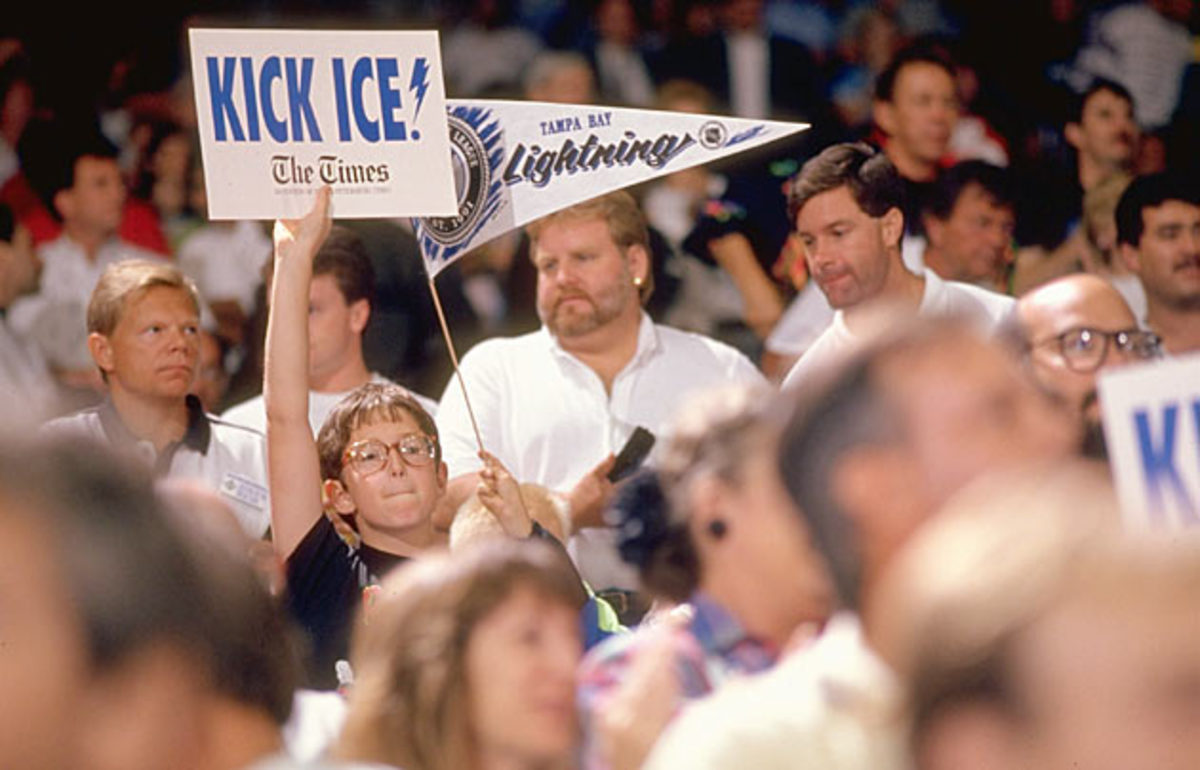
Why Tampa? “Why not?” says the 50-year-old Esposito, who was fired as general manager of the New York Rangers in 1989. “The phone wasn’t exactly ringing off the hook. So I thought, I want to stay in this game, but why the hell do I have to be cold?”
Espo headed for virgin hockey territory, checking out Miami and Orlando before settling on Tampa, which is loaded with northern transplants, many of whom were presumably hockey fans in a previous life. To bait the hook, the Lightning flooded the area with a pamphlet called Everything You Need to Know about Hockey Without Getting on the Ice. Hat trick is in there, tucked between game misconduct and high sticking. “If we can get people who haven’t ever seen hockey to come out to one game,” says Crisp, “we’ll make them into hockey fans.”
It’s going to be an uphill battle. The Tampa area may be football-mad and baseball-starved, but it doesn’t seem all that hungry for hockey. The Lightning sold a disappointing 4,700 season tickets, and although the house was full on opening night, none of Tampa Bay’s three home games since then has been a sellout.
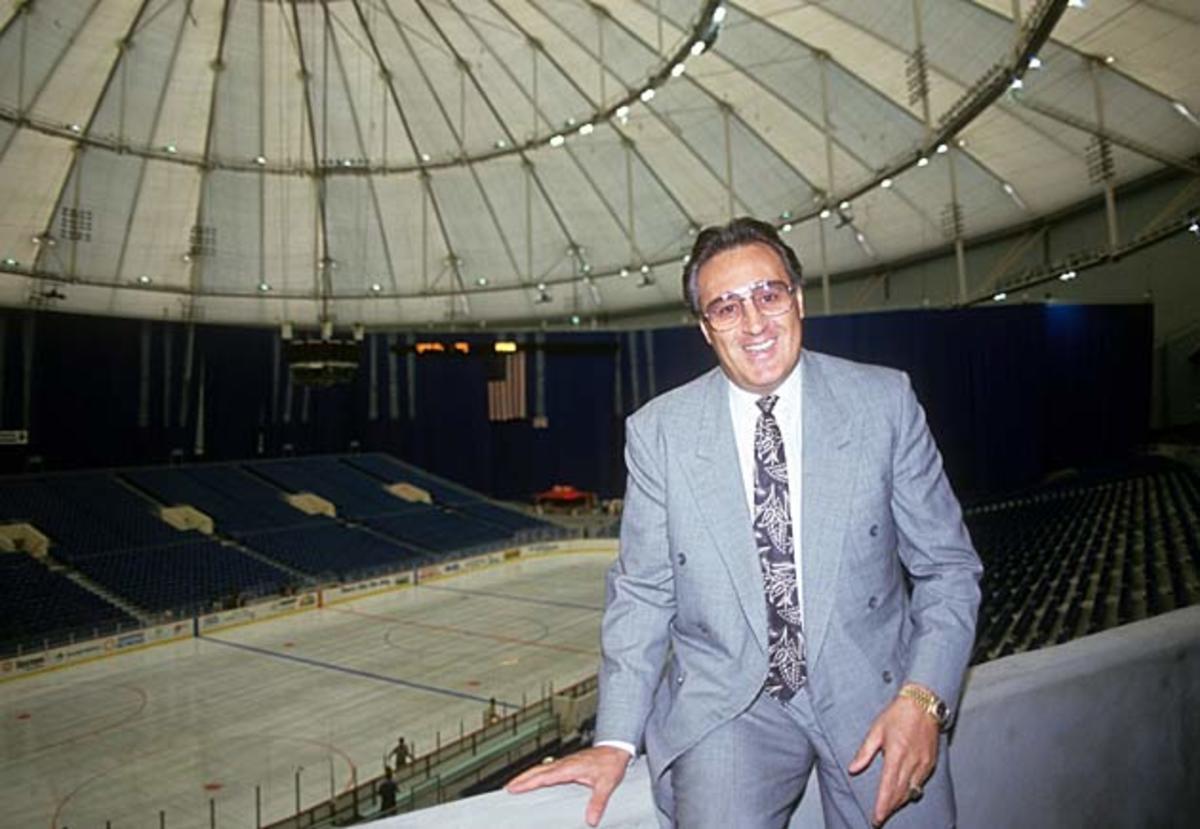
The Atlanta Flames set an ominous example for hockey in the South, moving to Calgary in 1980 after eight seasons in Georgia. One of the biggest obstacles to Tampa’s long-term success may turn out to be the lack of a suitable arena. The group that promises to build a $100 million, privately financed 18,500-seat coliseum has yet to come up with the cash. When plans fell through to play in St. Petersburg’s giant Suncoast Dome, the Lightning settled for Expo Hall — the smallest arena in the league — seven miles east of downtown Tampa. Designed for the Florida State Fair, as well as horse shows, dog shows and the circus, Expo Hall looks like a can of Spam covered with aluminum siding. The team spent about $2 million to renovate the place, installing an ice surface, dressing rooms, scoreboards, a sound system and a broadcast booth. The front row, at ice level, is exactly 19 inches from the boards.
“I don’t care that it’s 85 degrees outside,” Esposito says. “The ice is here. The boards are here. The players are skating here. This isn’t Florida. It’s hockey.”
The Lightning is counting heavily on the annual migration of snowbirds to their winter homes. “What are the five toughest places to play in the NHL?” asks Crisp. “I say New York, the Nassau Coliseum on Long Island, Philadelphia, Chicago and Detroit. We’ve got hard-core fans from all those places who come down here in the winter. It’s going to be five times as crazy in here when those people start showing up.”
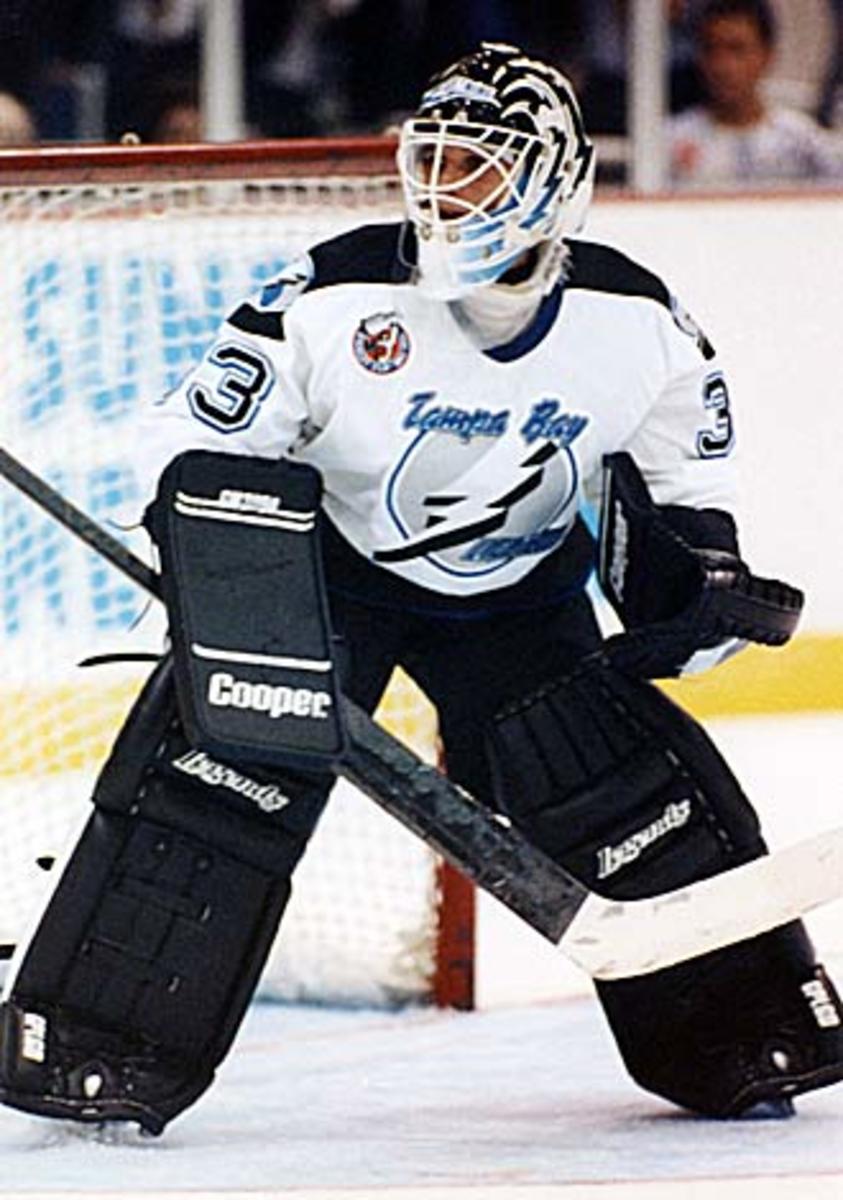
If they don’t, Esposito will at least be able to say that he tried everything. The Lightning has a catchy slogan (“Kick Ice”), snazzy uniforms and souvenirs that are selling almost as fast as those of the San Jose Sharks, a second-year franchise that sold more merchandise last season than any hockey team. Training camp was packed with sideshows, including a failed comeback by flamboyant Ron Duguay and the appearance in goal of Manon Rheaume, the first woman to play in an NHL exhibition game. We haven’t heard the last of Rheaume; she’ll spend the season with the Atlanta Knights, Tampa Bay’s farm team in the International Hockey League. Forward Brent Gretzky was in camp, too, but the Great One’s 20-year-old brother was also sent to Atlanta. He‘ll be back. But a funny thing happened on the way to the circus. “I looked around in camp,” says center Rob DiMaio, “and I saw the guys we had, and I said, ‘Geez, this looks like a good hockey team.’”
In the expansion draft last summer, Esposito concentrated on obtaining veterans like goalie Wendell Young and defensemen Joe Reekie, Doug Crossman, Peter Taglianetti and Rob Ramage. “That’s where you start, with defense and goaltending,” says Crisp, who played for two expansion teams, the 1967-68 St. Louis Blues and the ’72-73 New York Islanders. “Then you start worrying about finding your Mario Lemieux and your Brett Hull.”
No one on the Lightning roster will be mistaken for those guys. Instead, Tampa Bay must rely on players like Kontos, a 28-year-old free-agent forward who had been discarded by the Rangers, the Pittsburgh Penguins and the Los Angeles Kings. As of Sunday, though, Kontos led the Lightning in goals, with eight.Roman Hamrlik, 18, the Czechoslovakian defenseman who was thefirst overall pick in the June amateur draft, showed in the Edmonton game that he can both rush the puck and shoot, scoring from the point with an explosive blast. “With the exception of Roman,” says Ramage, “we’re a cast of castoffs.”
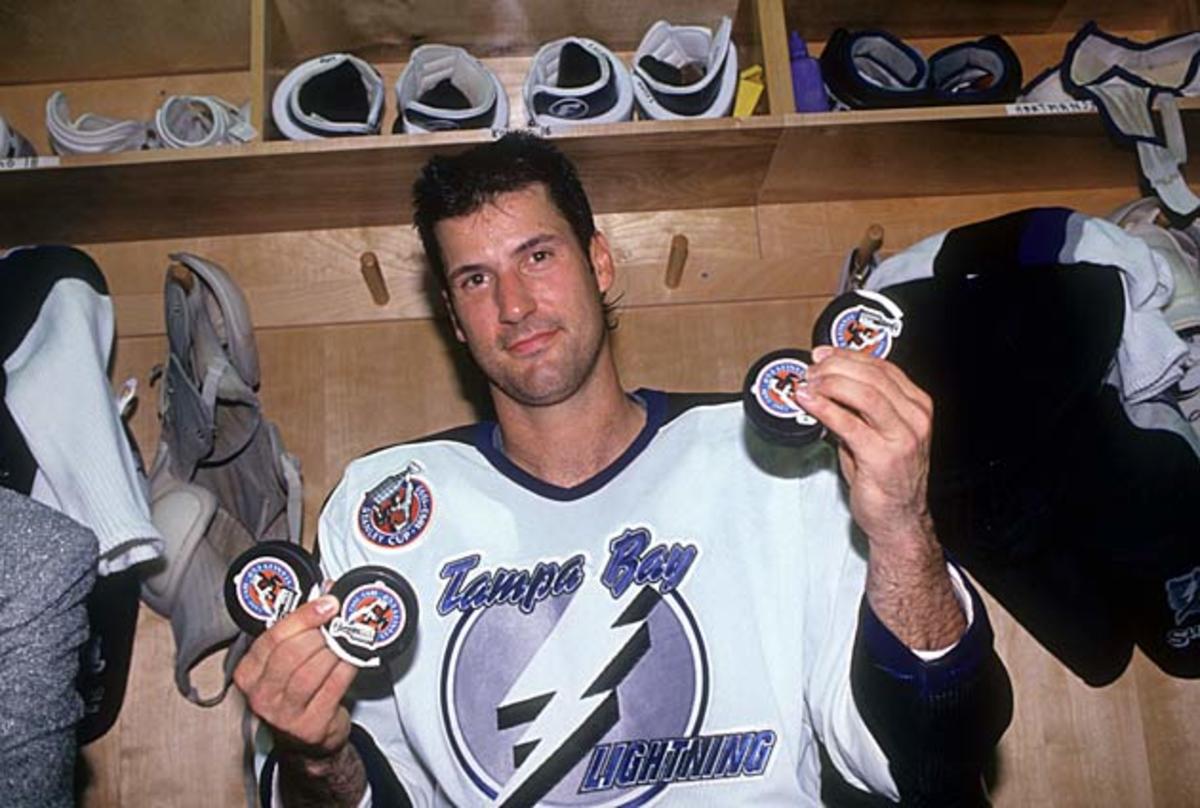
The fiery Crisp was a notorious screamer in his one previous NHL head-coaching job, with Calgary from 1987 to ’90, but he won the Stanley Cup in ’89. All Terrible Terry demands now is effort. “A lot of nights we’ll be successful,” he says. “A lot of nights we won’t. But anyone who pulls on that jersey knows he’s got to work. We won’t tolerate slack nights.”
Crisp keeps a hard hat emblazoned with the Lightning logo in a corner of the tiny office he shares with assistant coach Wayne Cashman. Crisp appreciates the difficulty of this construction job. “What appealed to me,” he says, “was when Phil said, ‘Let’s do something everyone says we can’t do.’”
Esposito has surrounded himself with so many of his friends and family that people are starting to call the Lightning's home arena Espo Hall. His brother, Tony, a Hall of Fame goalie, is director of player personnel. Phil’s daughter Carrie is a member of the hockey-operations staff. Cashman was his linemate and bodyguard with the Boston Bruins. Cashman’s daughter, Becky, is a marketing assistant. Esposito made a trade with the Bruins to get center Ken Hodge, son of the third member of that old Boston line.
Too bad the extended family doesn't have any lawyers. Esposito, never combative as a player, decided the time had come to kick ice when he spotted Toronto Star columnist Bob McKenzie after an Oct. 15 loss at Maple Leaf Gardens. He ordered McKenzie, against whom he has a long-standing grudge, out of the Lightning dressing room. When McKenzie rightfully refused to leave, a scuffle ensued. McKenzie filed a complaint with Toronto police, claiming that Esposito had hit him. Espo contends he merely delivered a gentle push.
Dealing with Toronto authorities should be a cakewalk compared with the task Espo Co. face at home. “We’re making progress,”says Crisp. “People are starting to talk about us in Tampa. My daughter tells me that some of her high school friends have even asked her for tickets — on the 50-yard line.”
Esposito was half right. This may be hockey, but it’s still Florida.
GALLERY: NHL expansion teams and their fates
NHL Expansion Teams
Los Angeles Kings | 1967
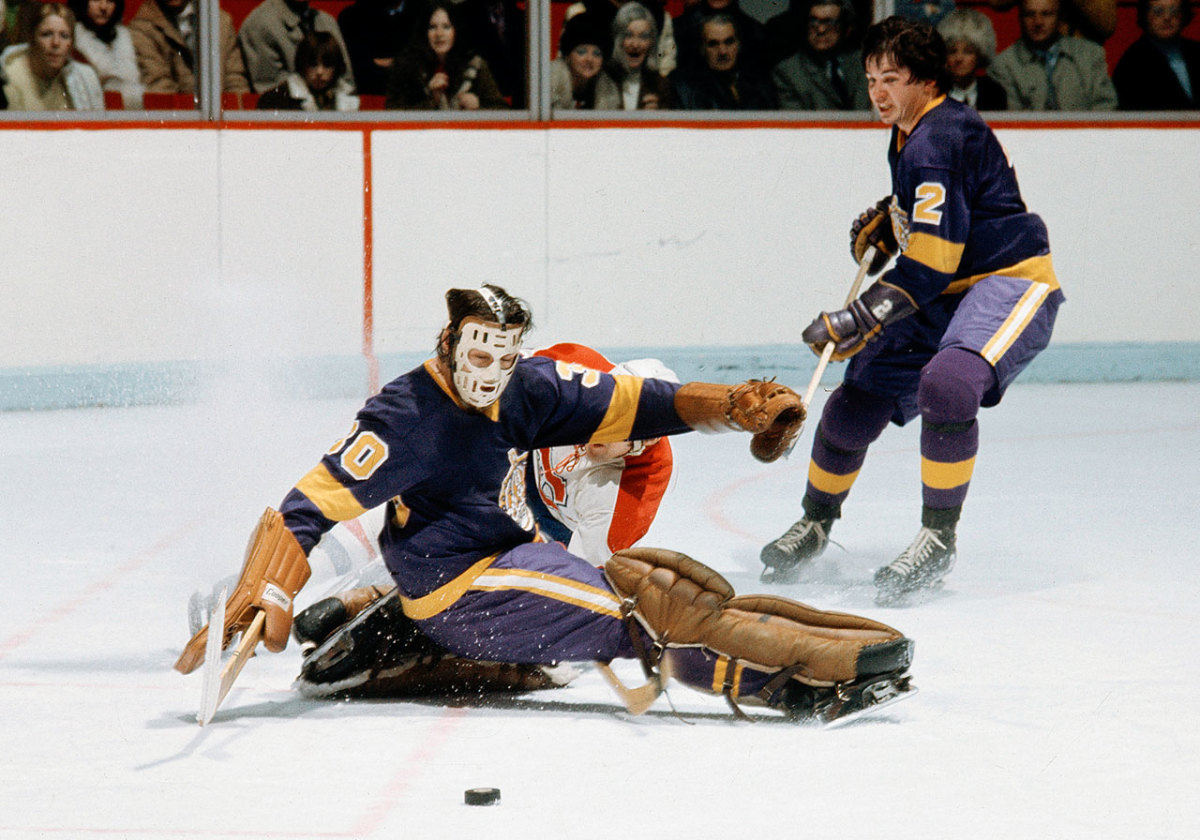
One of the six new teams the NHL added in its landmark expansion from the Original Six era, the Kings were originally owned by Jack Kent Cooke, who saw great potential in the LA area. Front office mismanagement fueled poor attendance, but a subsequent owner, Bruce McNall, put the Kings on the sports map in 1988 by acquiring Wayne Gretzky. The team reached the Stanley Cup Final in 1993, but went bankrupt in 1995. It was rescued by new owners Philip Anschutz and Edward Roski, and has since been quite successful, winning the Cup in 2012 and ’14. All-time regular season record: 1,501-1,605-424-106; Postseason appearances: 28; Stanley Cups: 2
Minnesota North Stars | 1967
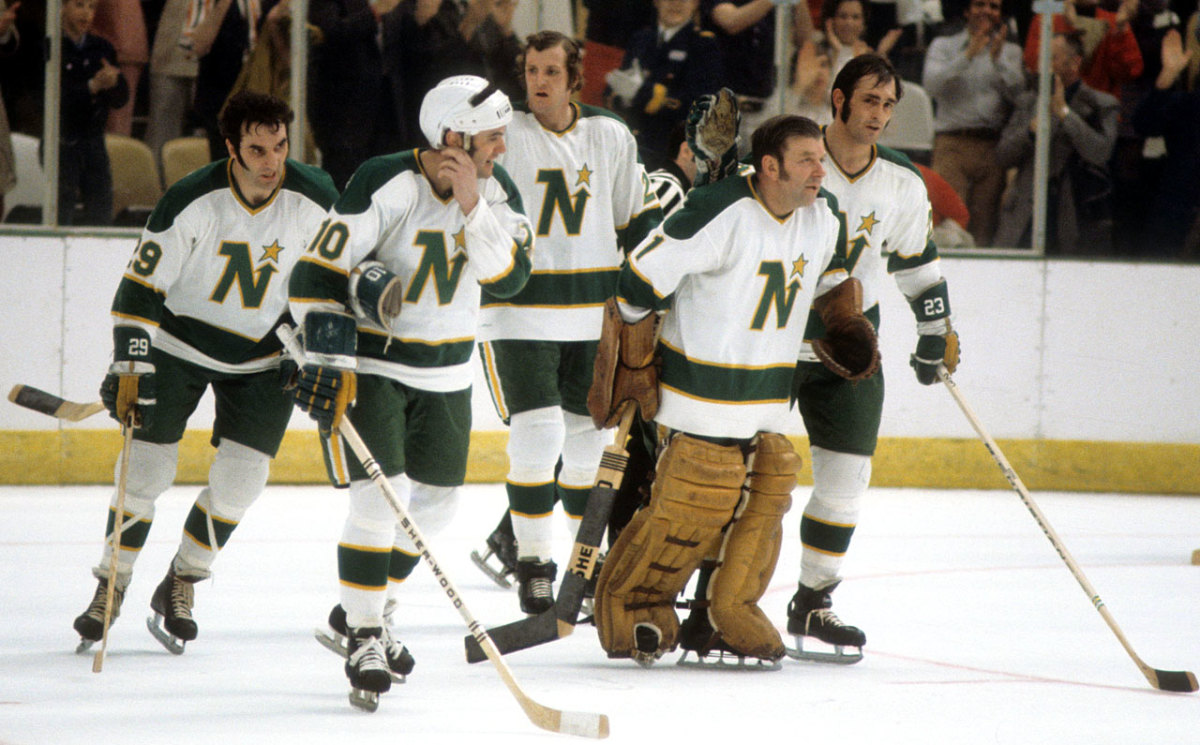
Awarded to a hockey hotbed, the North Stars began to struggle at the gate when they failed to reach the playoffs five times in six seasons (1973-79), and were merged with Cleveland Barons in a bid to keep them afloat. They recovered on the ice, reaching the Stanley Cup Final in 1981 and ’91, but remained the subject of relocation threats (Anaheim; San Francisco). They were finally moved to Dallas in 1993, becoming the Stars and winning the franchise’s first Cup in 1999. All-time regular season record: 1,572-1,510-459-95; Playoff appearances: 30; Stanley Cups: 1
California Seals | 1967
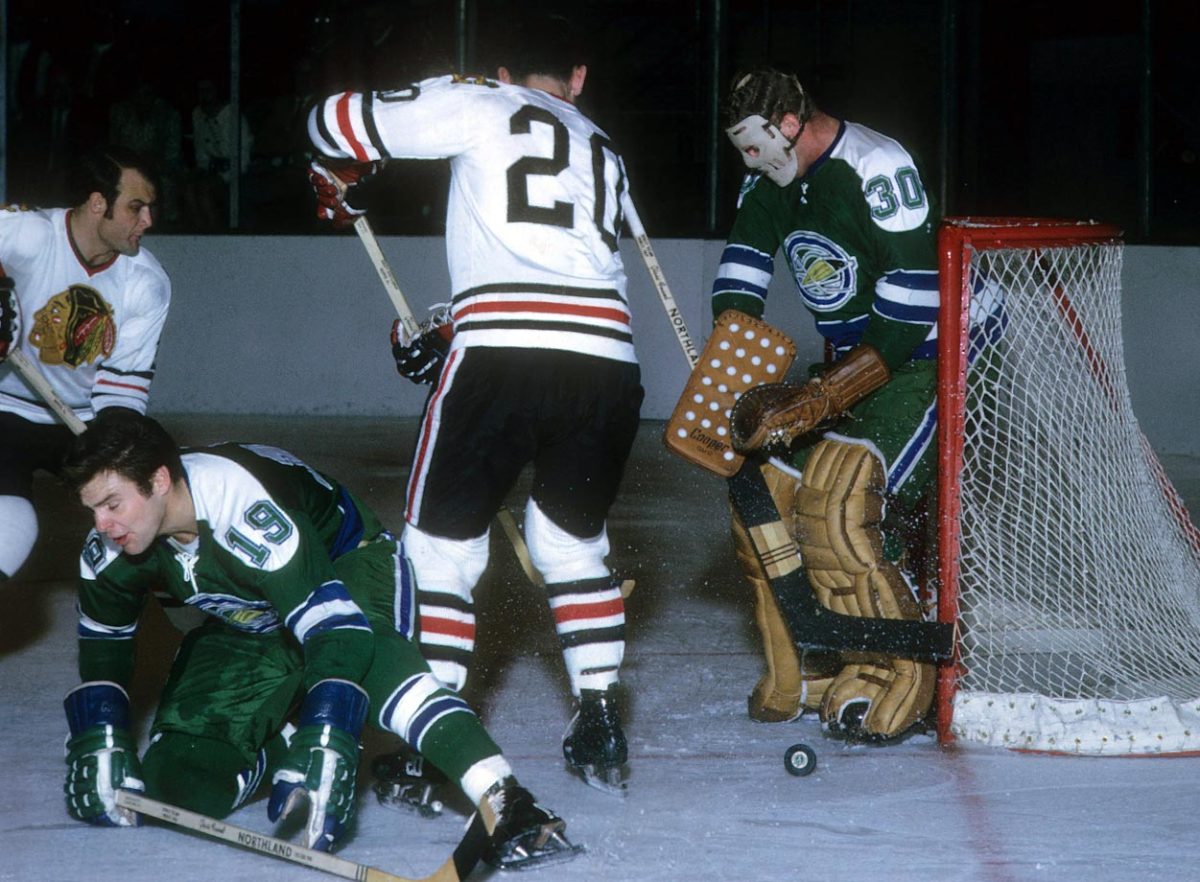
Victims of an identity crisis (their name was changed from California to Oakland during their first season, then to “Golden Seals” in 1970) and a dire shortage of talent, the Seals were never winners during their 11 seasons in the league. They made the playoffs, exiting in the first round, in their second and third seasons, but where otherwise a hot potato franchise with low attendance and frequent ownership changes. In 1976, they moved to Cleveland (the first NHL franchise to relocate since 1935) and became the Barons, only to be merged with the struggling Minnesota North Stars two years later, thus becoming the only NHL team to go under since the Brooklyn Americans in 1942. All-time regular season record: 229-488-141-0; Playoff appearances: 2; Stanley Cups: 0
Philadelphia Flyers | 1967
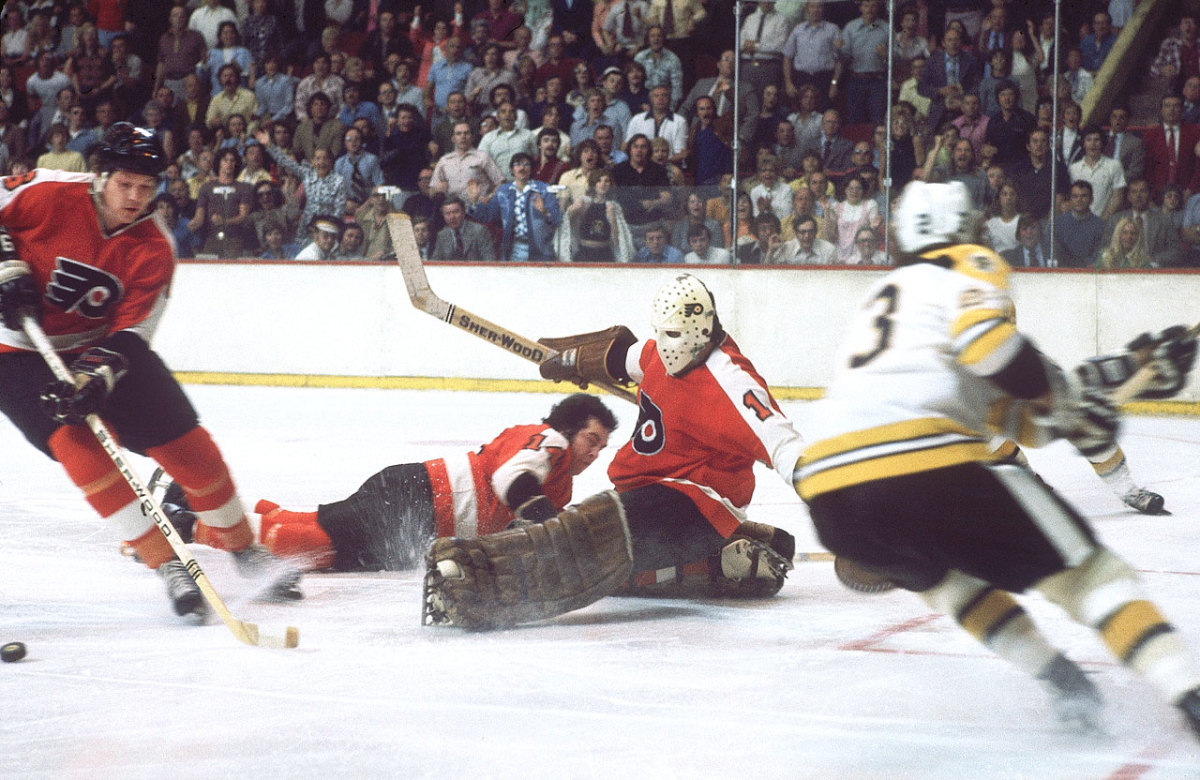
The most consistently stable and certainly one of the most successful original expansion era franchises, the Flyers are still controlled by original owner Ed Snider. They began life in the NHL’s new “West Division” which housed the six expansion teams the league added in 1967, and have since made eight Stanley Cup Final appearances, winning twice. All-time regular season record: 1,821-1,254-457-104; Postseason appearances: 37; Stanley Cups: 2
Pittsburgh Penguins | 1967
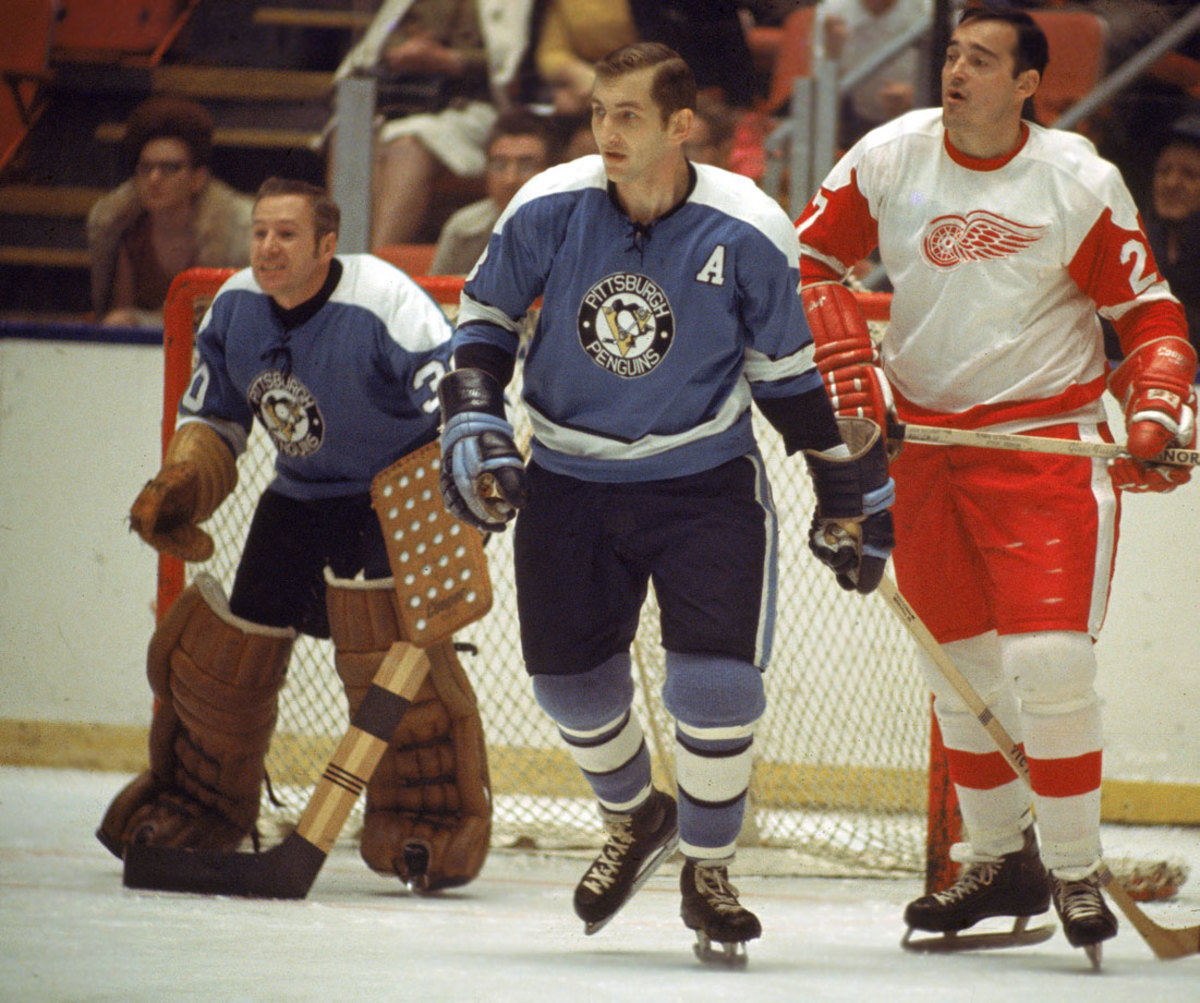
The Pens have seen great highs and dramatic lows during their 47 years in the NHL. Blessed with superstars such as Mario Lemieux, Jaromir Jagr and Sidney Crosby plus four Stanley Cup Final appearances and three championships, they’ve also suffered dire and sometimes prolonged droughts on the ice. They were nearly moved to Seattle in the ‘70s, and by the mid-2000s were in the throes of financial collapse and on the verge of being relocated (possibly Kansas City or Hamilton, Ontario), but the arrival of Crosby in 2005, Lemieux’s ownership, and a new arena have restored stability. All-time regular season record: 1,594-1,566-383-93; Playoff appearances: 29; Stanley Cups: 3
St. Louis Blues | 1967
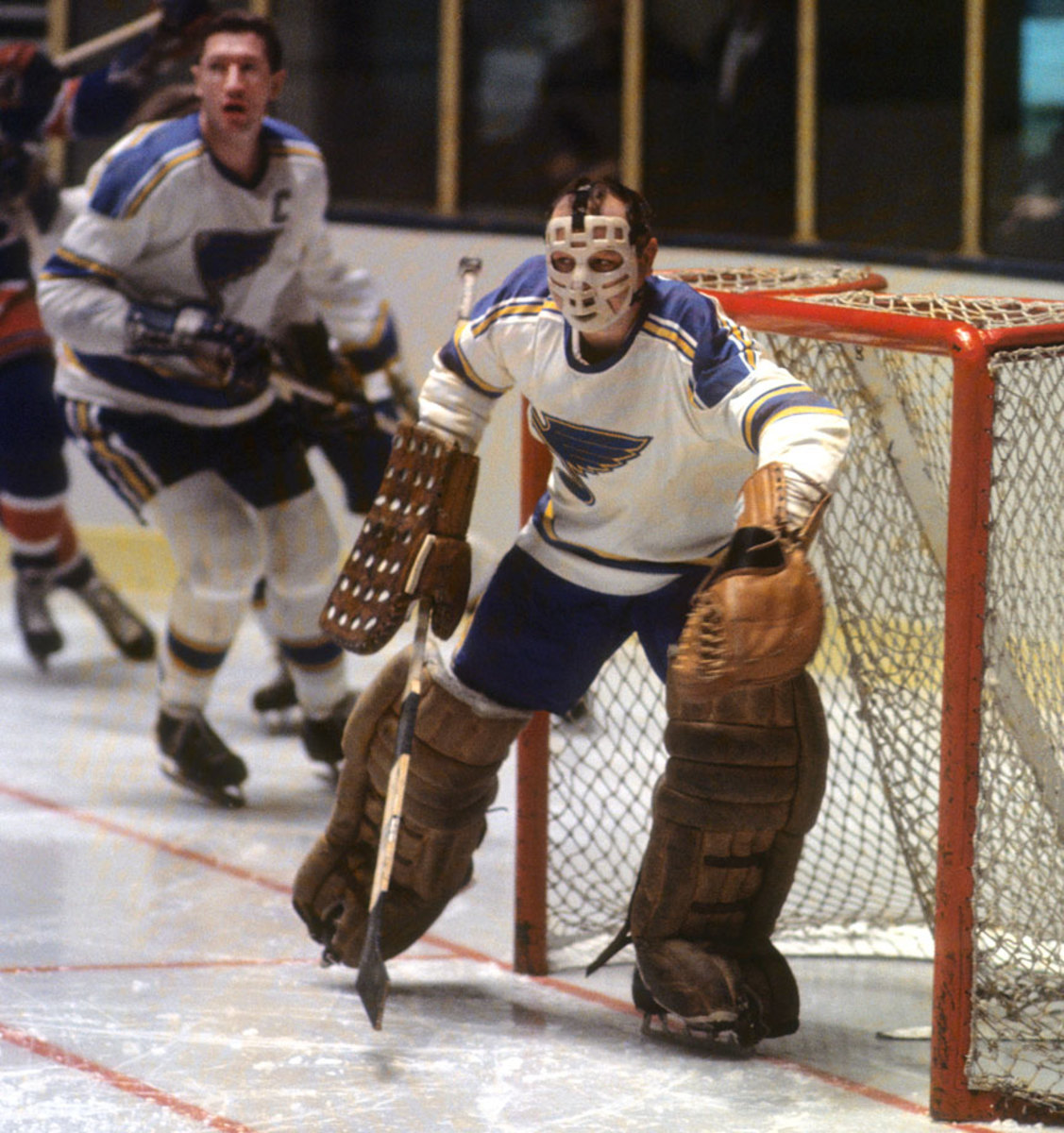
Ultimate survivors, the Blues began NHL life by representing the expansion West Division in the Stanley Cup Final for three straight seasons, but they remain the only existing member of the Class of ’67 that has not won the Cup. By the 1970s, they began experiencing persistent financial difficulties that led to a succession of ownership changes. At one point in the early ‘80s, the Blues looked like a candidate for contraction, and the NHL took over the team after preventing it from being relocated to Saskatoon. Last season, Forbes ranked St. Louis 29th in value, at $185 million. All-time regular season record: 1,625-1,469-432-110; Postseason appearances: 38; Stanley Cups: 0
Buffalo Sabres | 1970
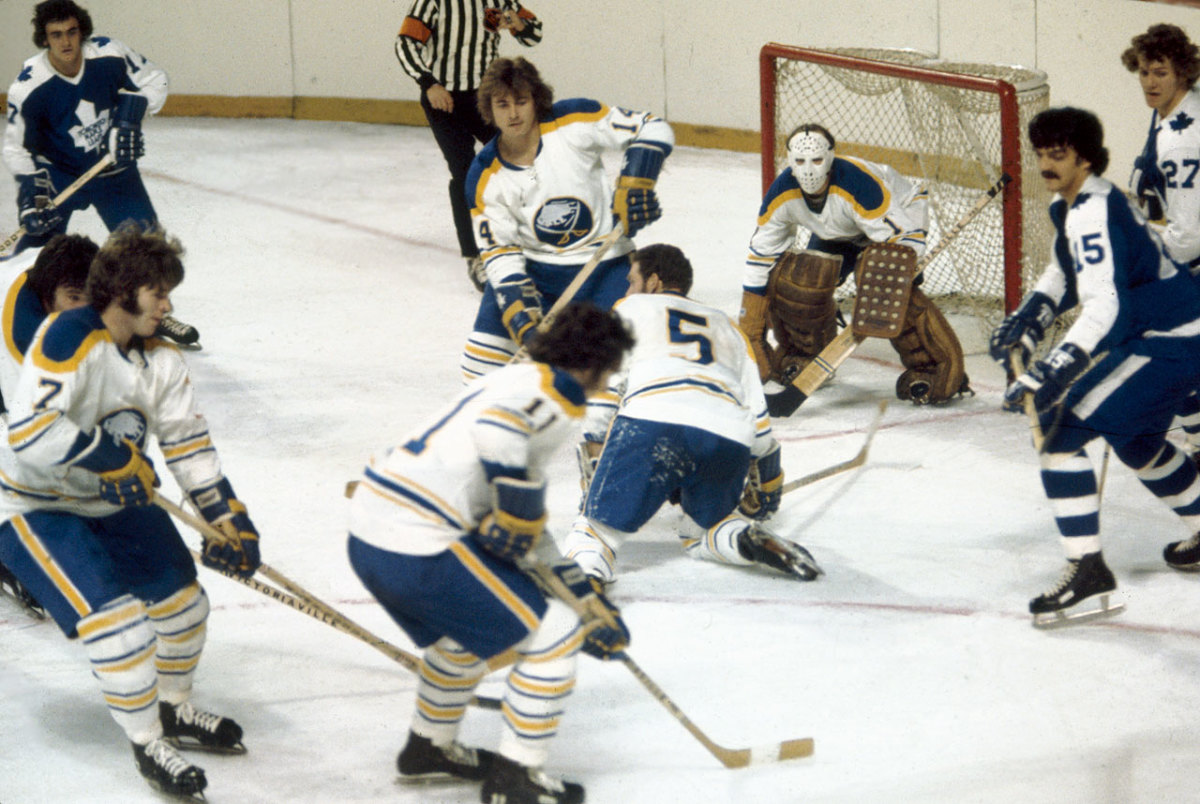
Blessed with one of the most passionate fan bases in all of sports, the Sabres have had their ups and downs, making two Stanley Cup Final appearances and, since the late ‘90s, surviving financial difficulties, ownership changes, and the possibility of being relocated. Current owner Terry Pegula, a lifelong fan, has vowed to rebuild the struggling team, which is still seeking its first Cup. All-time regular season record: 1,611-1,291-409-99; Postseason appearances: 29; Stanley Cups: 0
Vancouver Canucks | 1970
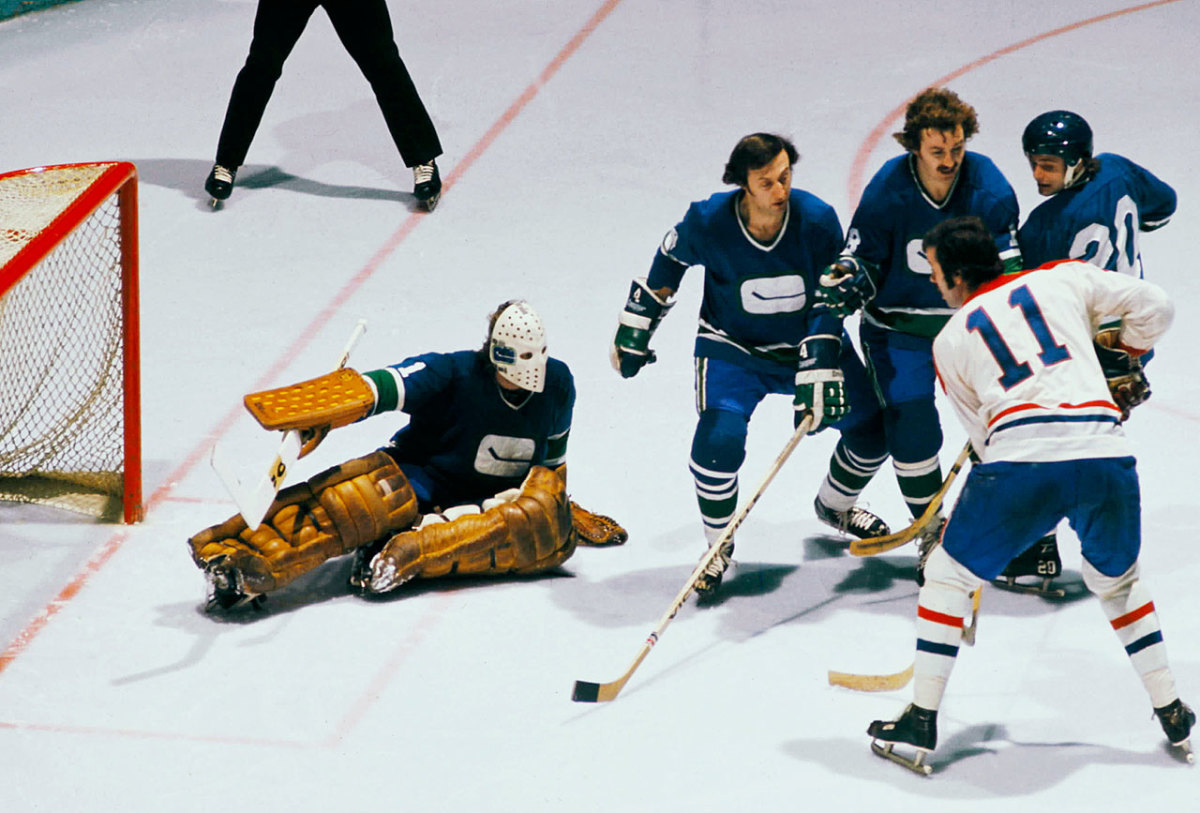
After Vancouver nearly landed the struggling Oakland Seals, the Canucks became the city’s first major pro hockey team since the Millionaires of the PCHL folded in 1926. The franchise—which remains stable and is ranked by Forbes as the NHL’s fourth most-valuable ($700 million)— has survived stretches of losing seasons and a threat from the WHA’s Vancouver Blazers, while making three Stanley Cup Final appearances and occasionally breaking the hearts of its devoted and often demanding fans. All-time regular season record: 1,415-1,504-391-100; Postseason appearances: 26; Stanley Cups: 0
Atlanta Flames | 1972
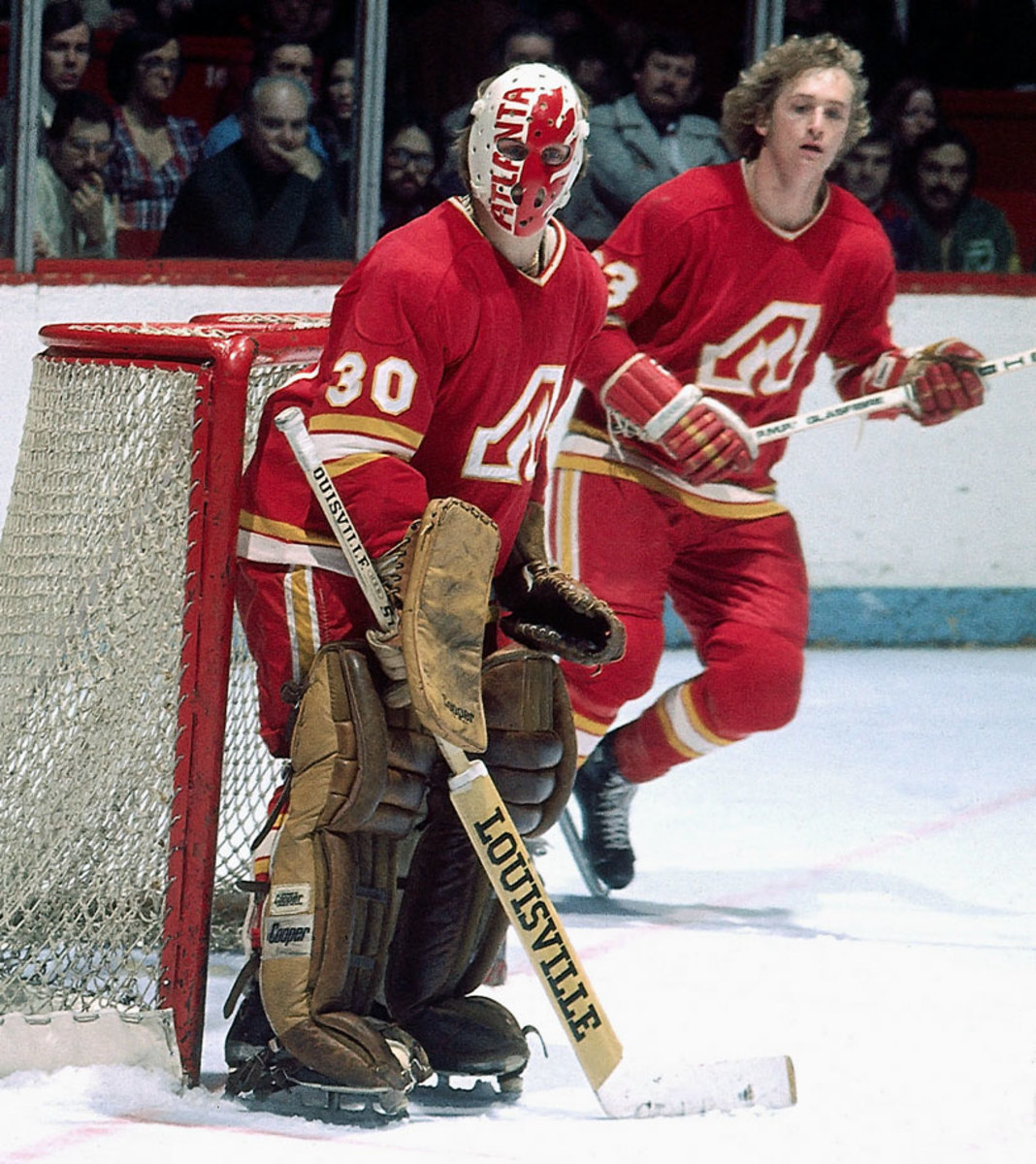
The NHL’s first foray in Atlanta—the owners of the NBA’s Hawks were awarded the franchise—did not go well despite the Flames making the playoffs in six of their first eight seasons. Five first round exits didn’t help, but the city’s fans were apathetic and the team struggled financially, thanks in part to receiving little TV revenue. In 1980, principal owner Tom Cousins sold the team to avoid bankruptcy. It was hoped that the Flames would remain in Atlanta, but buyer Nelson Skalbania moved them to Calgary in time for the 1980-81 season. All-time regular season record: 1,491-1,279-379-105; Postseason appearances: 26; Stanley Cups: 1
New York Islanders | 1972
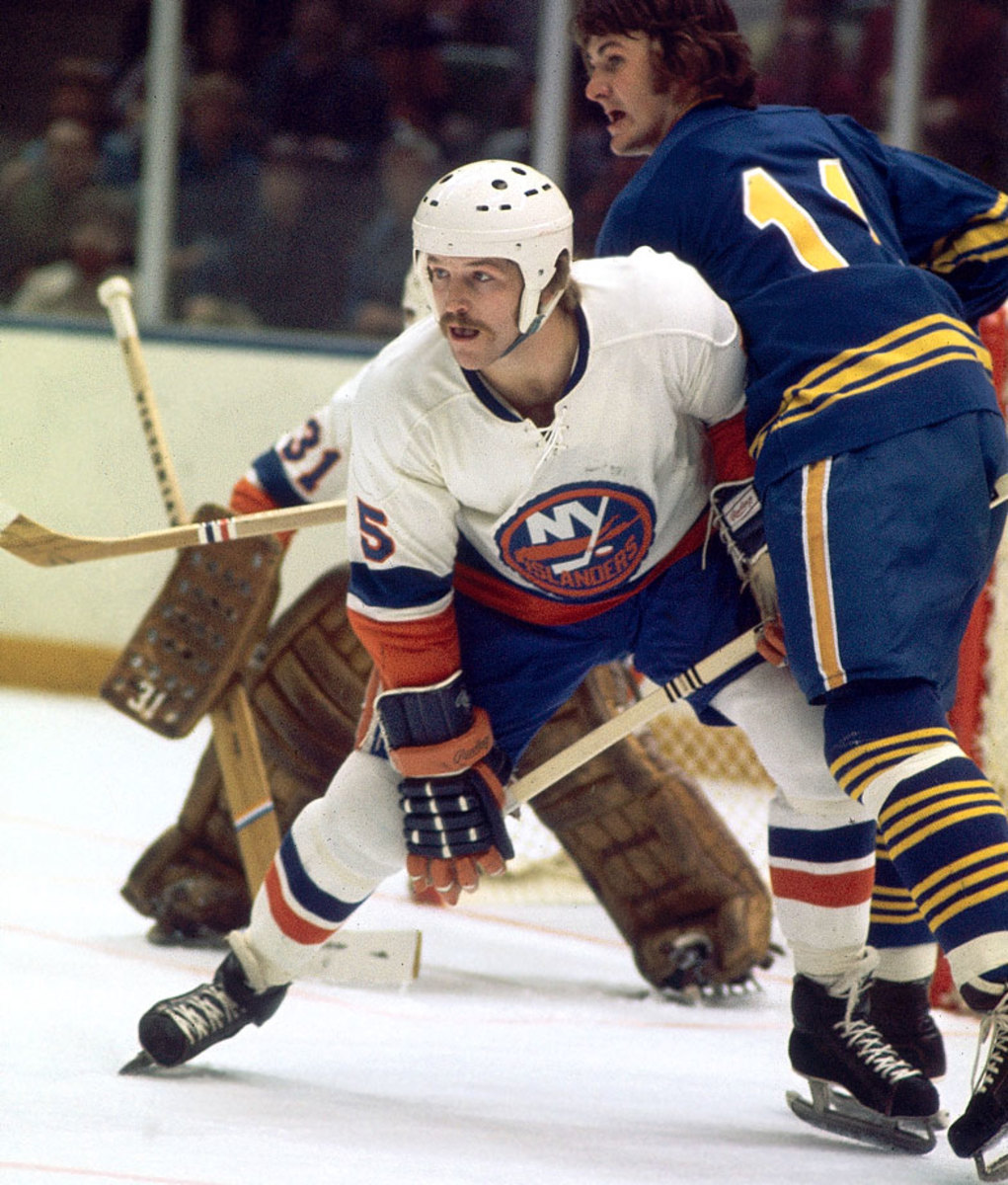
Their first season was an epic 12-60-6 disaster, but the team soon began a meteoric rise into a dynasty that won four successive Stanley Cups during a run of five straight final appearances (1980-84). After that, owner John O. Pickett, who had signed a disastrous long-term arena lease that denied the team badly needed revenue, moved to Florida and handed control of the Isles to the first of a succession of dubious owners that included notorious con man John Spano. A long descent into mediocrity ensued. Bleeding red ink, current owner Charles Wang, unable to replace the crumbling Nassau Coliseum, decided to move the Isles to Brooklyn for the 2015-16 season. All-time regular season record: 1,405-1,399-347-103; Postseason appearances: 22; Stanley Cups: 4
Kansas City Scouts | 1974
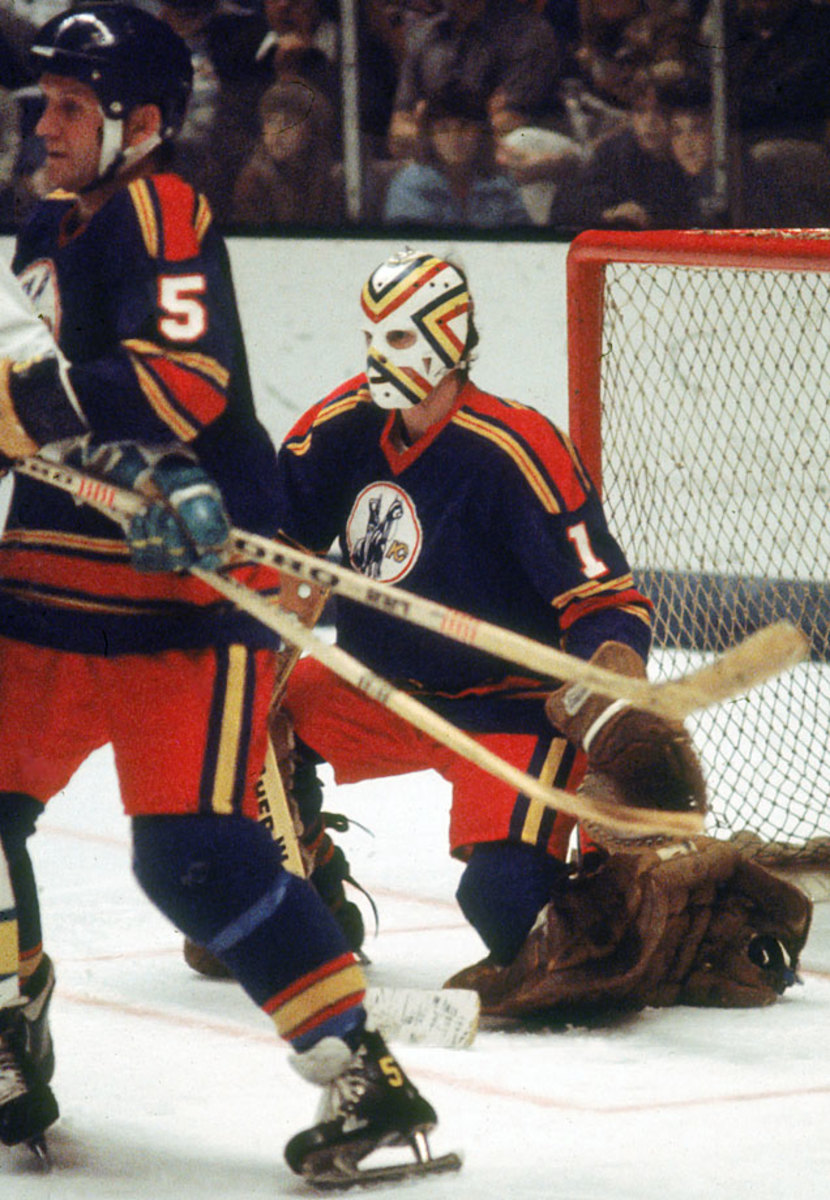
True nomads, the Scouts departed for Colorado and became the Rockies after two disastrous, sparsely attended seasons in Kansas City during which they won only 27 of their 160 games. They weren’t much better in their new home, reaching the playoffs once before moving to New Jersey in 1982 and becoming the Devils, who drew the ire of Wayne Gretzky for being, as he famously called them, “a Mickey Mouse franchise.” Since then, the team has fared much better on the ice, if not at the box office where it still struggles. The Devils have had their share of ownership changes and in 1995 were rumored to be moving to Nashville. All-time regular season record: 1,314-1,361-328-95; Postseason appearances: 22; Stanley Cups: 3
Washington Capitals | 1974
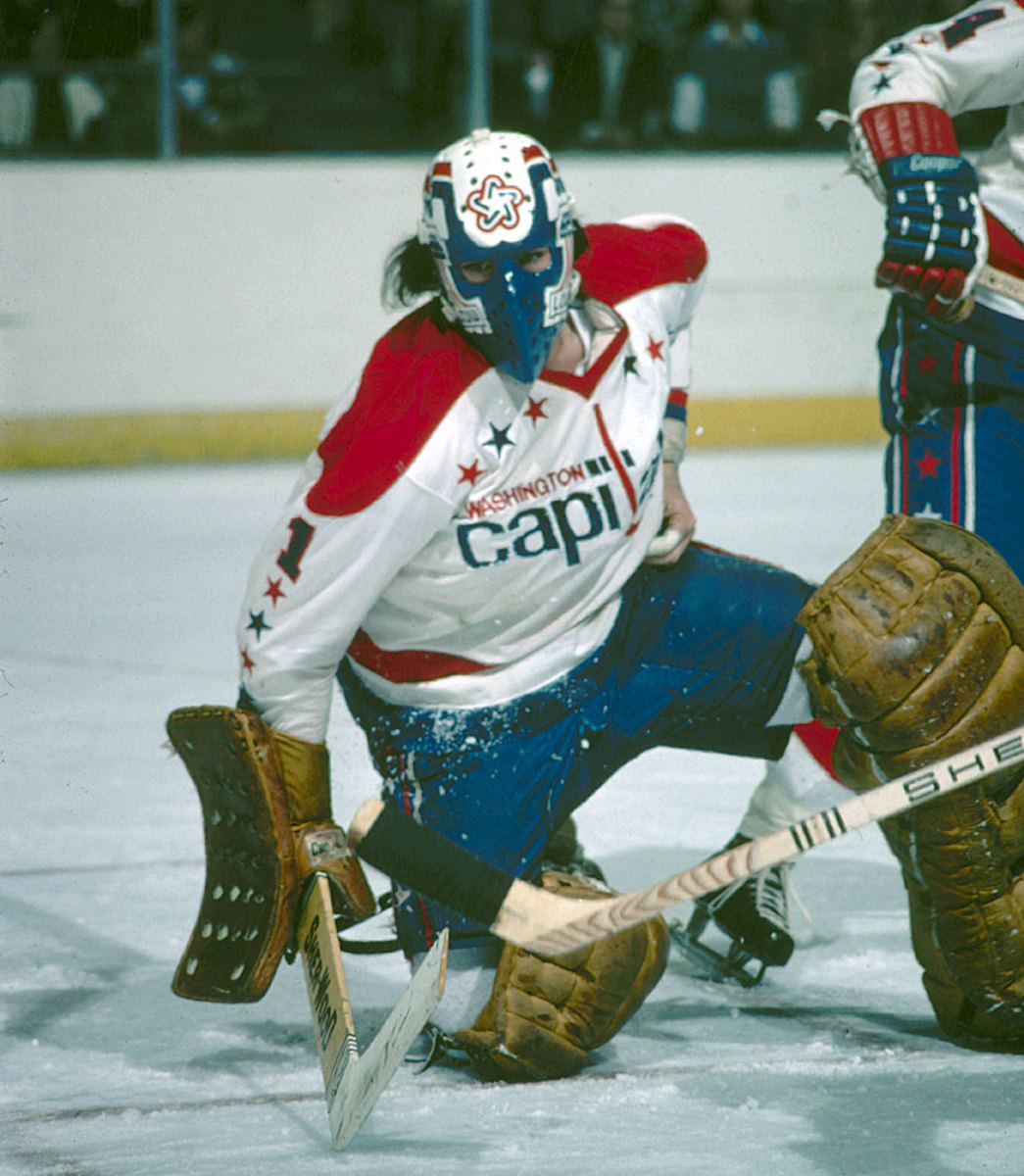
The Caps survived (barely) a horrid 8-67-5 first season that saw them set a record for futility. Blessed with a deep-pocketed owner (Abe Pollin), they hung on and eventually became a competitive team, though by the early 80s they were in danger of being relocated. A 14-year streak of playoff appearances helped keep them in D.C., and in 1998 they reached the Stanley Cup Final. Owned by the equally wealthy Ted Leonsis since 1999, the Capitals remain a stable if frustrating franchise that frequently fails to make the most of the considerable talent it puts on the ice. All-time regular season record: 1,370-1,317-303-108; Postseason appearances: 24; Stanley Cups: 0
Edmonton Oilers | 1979
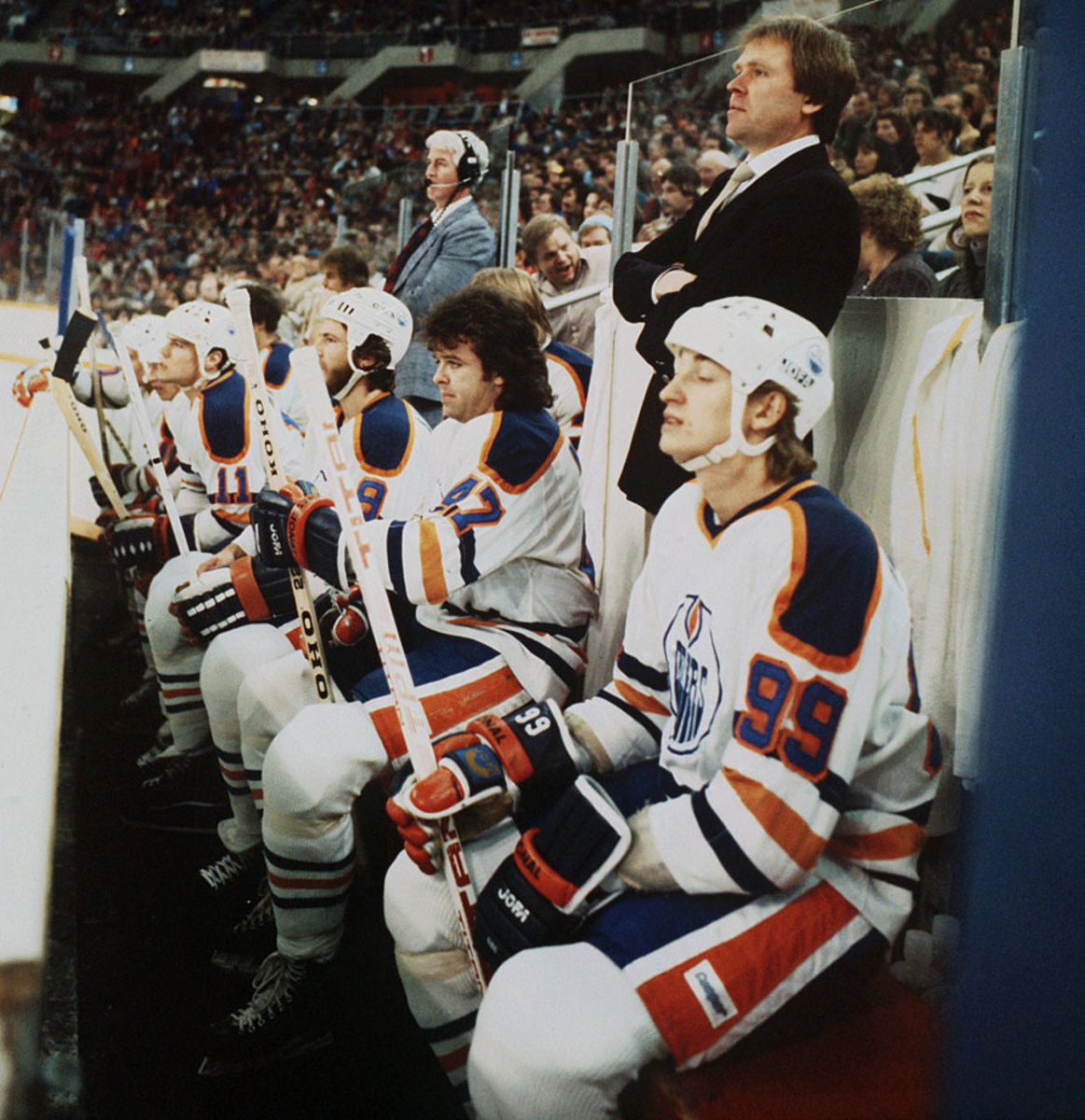
The NHL absorbed four WHA teams in 1979 and the Oilers are the only one that’s still in its original city. The team dominated the league in the 1980s, winning five Stanley Cups in six years, but its been a bumpy road ever since. A series of ownership changes and a recent arena dispute led to rumors of relocation, possibly Seattle. On the ice, the team has been a doormat in recent years despite a spate of high draft picks. All-time regular season record: 1,224-1,1102-262-110; Postseason appearances: 20; Stanley Cups: 5
Hartford Whalers | 1979
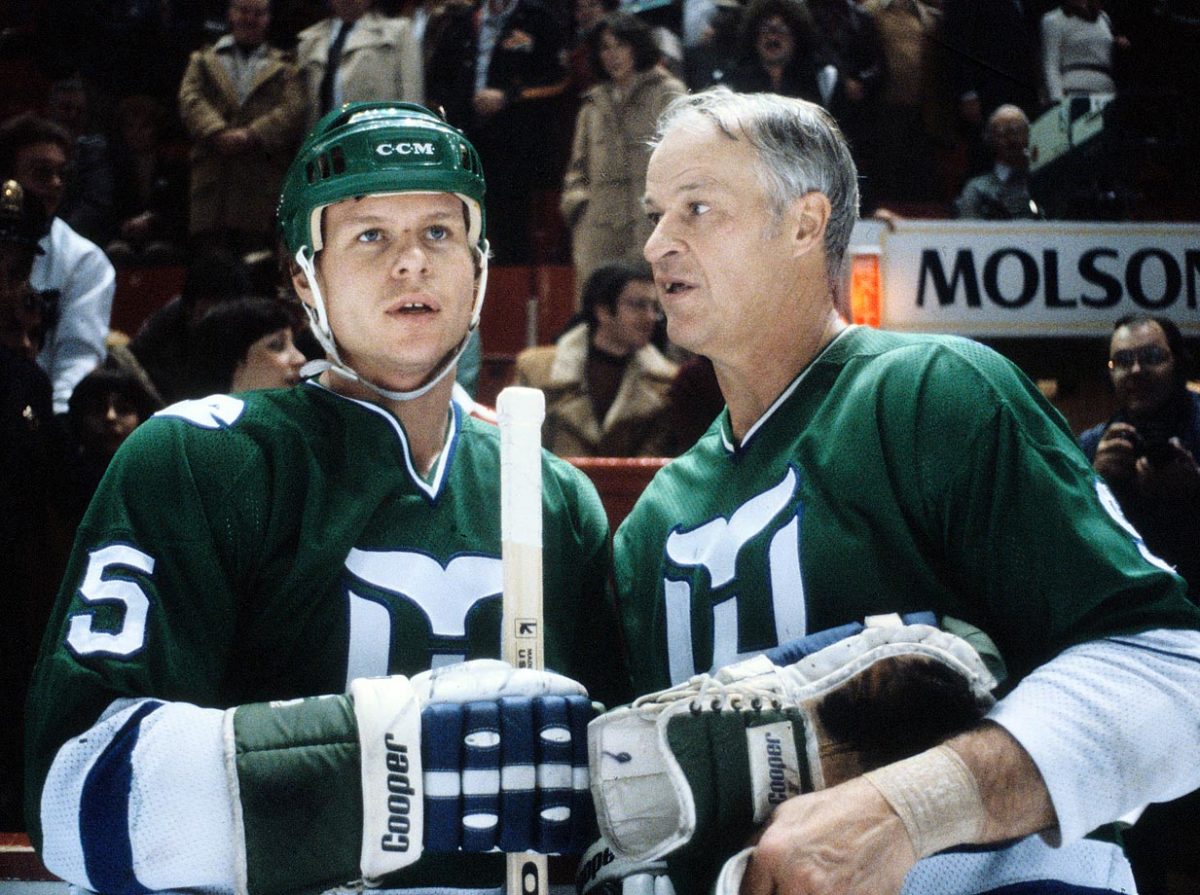
Absorbed from the WHA in 1979; the Whalers featured the 51-year-old Gordie Howe and went on to develop a reputation as lovable losers who advanced as far as the second round of the playoffs only once. After moving to Carolina in 1997 and becoming the Hurricanes, the franchise went on to make two Stanley Cup Final appearances, winning the championship in 2006. However, it languishes at 27th on Forbes’ franchise value list (at $187 million). Die-hard Whalers fans remain, and there is occasional talk of the NHL returning to Hartford. All-time regular-season record: 1,104-1,230-263-101; Postseason appearances: 13; Stanley Cups: 1
Quebec Nordiques | 1979
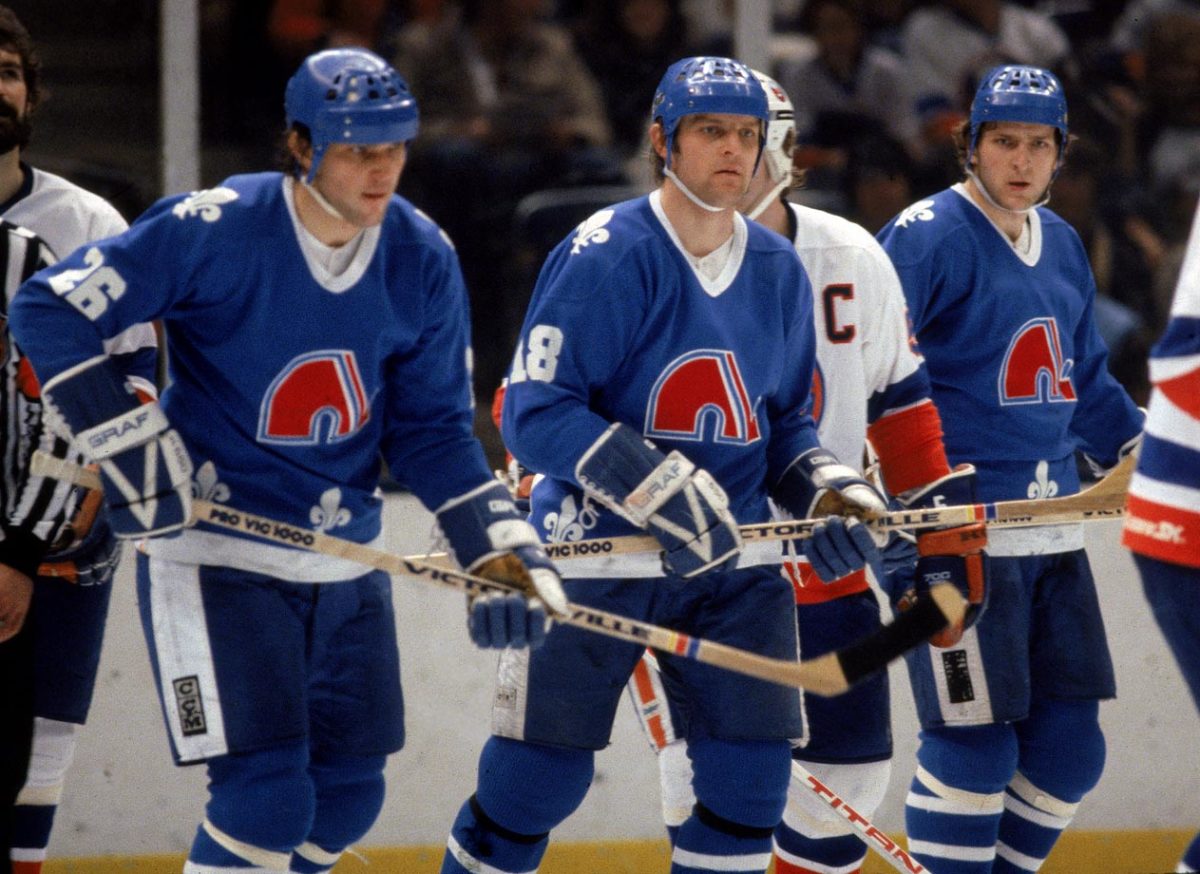
Yet another of the four 1979 additions from the WHA, the Nordiques boasted some very competitive teams in the 1980s (two reached the conference finals) and a heated rivalry with Montreal. But after six straight losing seasons, including a 12-61-7 mark in 1989-90, the franchise fell into financial difficulties that remained despite some vastly improved teams. In 1995, the Nords moved to Colorado, winning the Stanley Cup during their first season as the Avalanche. The franchise struggled at the gate in recent seasons, but a promising 2013-14 season improved the outlook. All-time regular-season record: 1,242-1,108-261-87; Postseason appearances: 22; Stanley Cups: 2
Winnipeg Jets | 1979
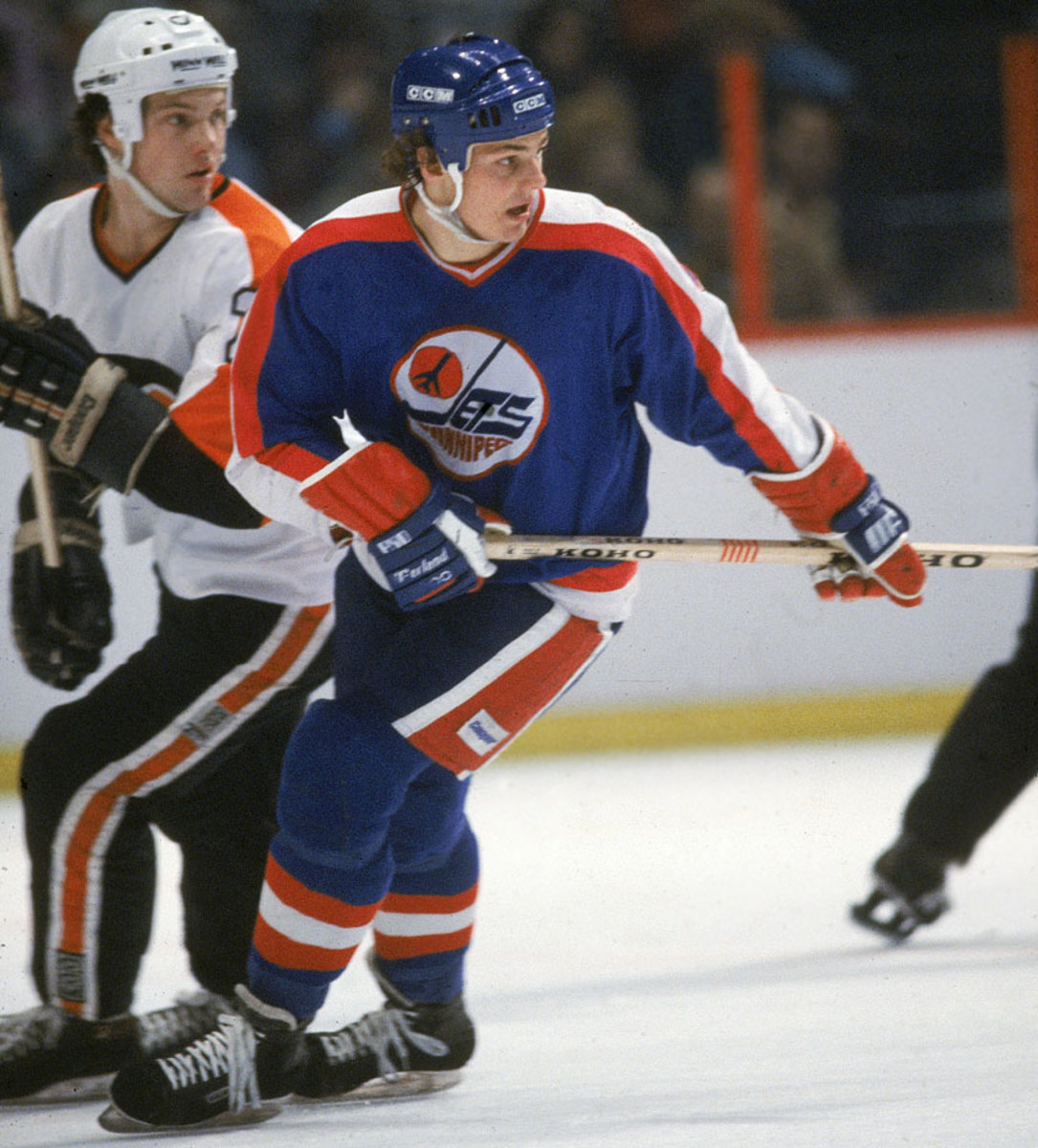
This original WHA franchise was absorbed by the NHL and beloved during its tenure in Winnipeg, a small market that took a brutal hit from a rise in player salaries in the ‘90s. Rumored to be moving to Minnesota, the Jets ended up in a suburb of Phoenix, Arizona in July 1996 and were renamed the Coyotes. Saddled with an arena in an inconvenient location for its fans, the team has endured years of financial hardship and was taken over by the NHL after it went bankrupt. A leading candidate for relocation, the Yotes remain in Arizona after being sold to a new ownership group in August 2013. All-time regular season record: 1,121-1,206-266-105; Postseason appearances: 16; Stanley Cups: 0
San Jose Sharks | 1991
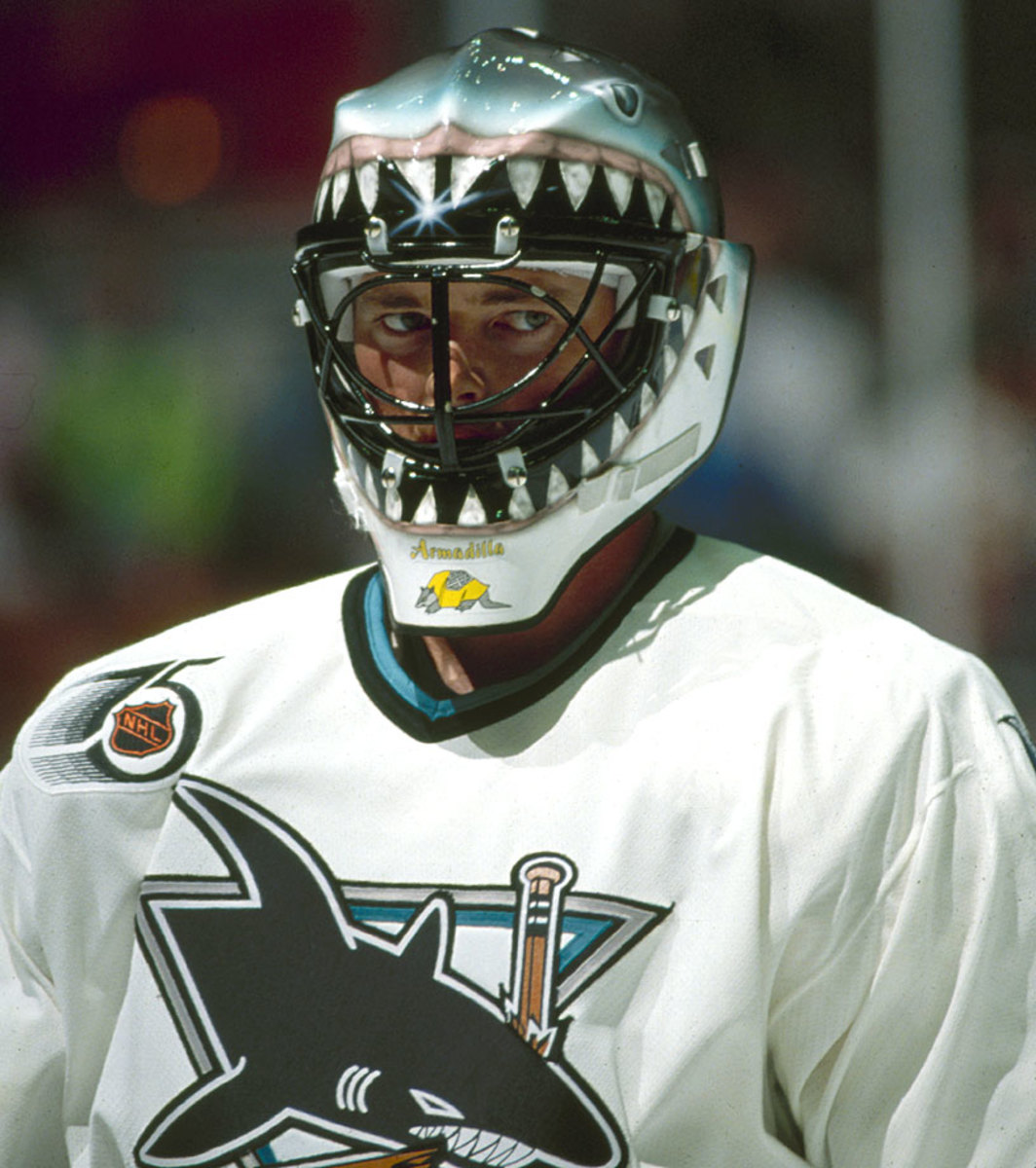
The NHL returned to the San Francisco Bay Area due to the efforts of Gordon and George Gund III, former minority owners of the California (Oakland) Golden Seals. Awarded a new franchise after selling their share in the North Stars, the Gunds had to let the Sharks play in San Francisco’s Cow Palace for two seasons until their new arena in San Jose was completed. The franchise has since become one of the NHL’s most stable and competitive even if does have a frustrating reputation for great regular season success followed by postseason disappointment. All-time regular season record: 797-710-121-110; Postseason appearances: 17; Stanley Cups: 0
Ottawa Senators | 1992
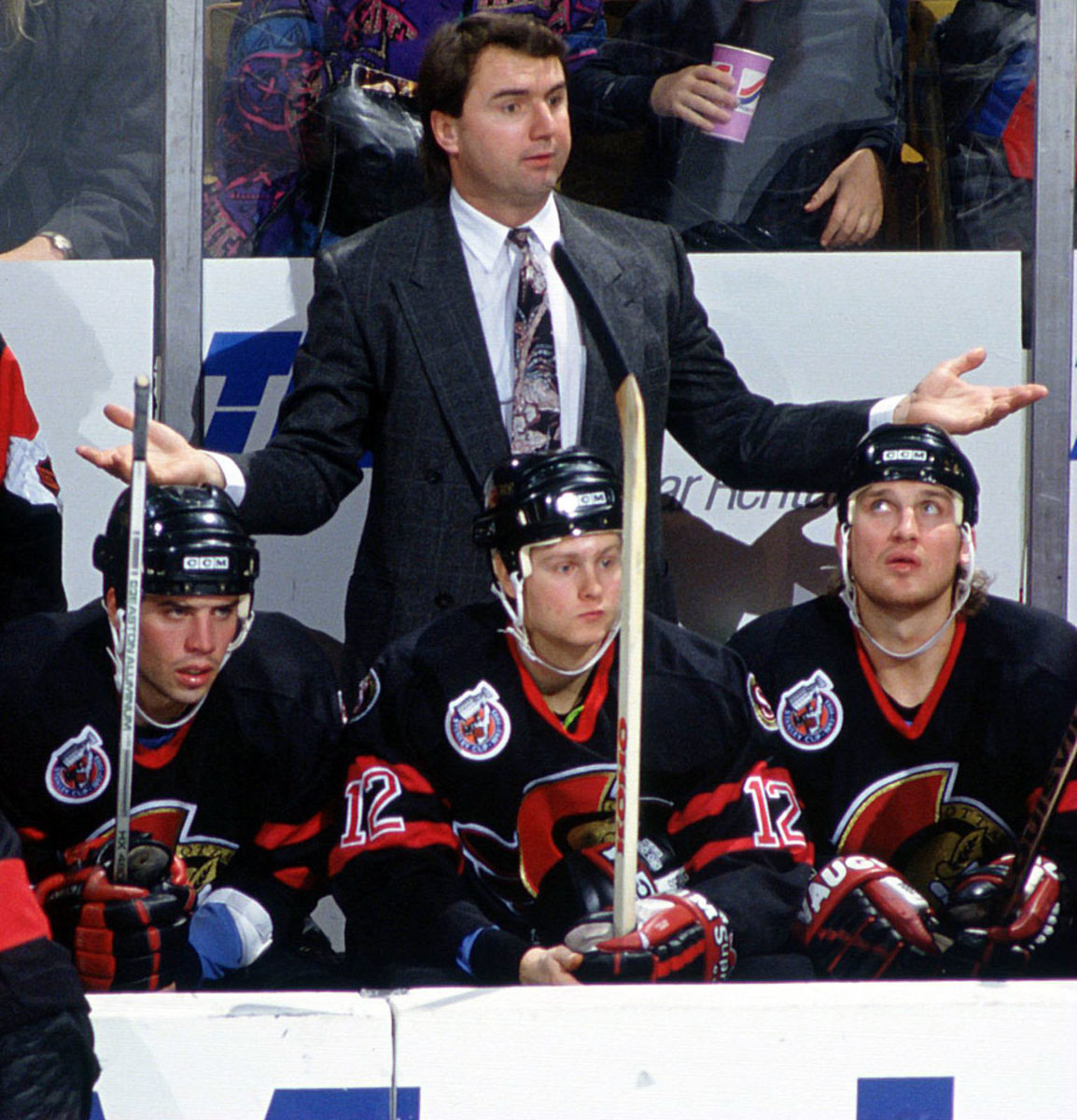
Named after Ottawa’s original Senators, who won 11 Stanley Cups, the new franchise was an attractive choice for the NHL due to its passionate fan base, existing arena and plan for a new facility. After four rocky losing seasons, the Sens became consistently competitive and reached the Stanley Cup Final in 2007. Despite some recent poor showings, the team remains stable with good support and a committed owner in Eugene Melnyk, though there have been reports that he is seeking a minority partner who could eventually take control. All-time regular season record: 741-699-115-103; Postseason appearances: 14; Stanley Cups: 0
Tampa Bay Lightning | 1992
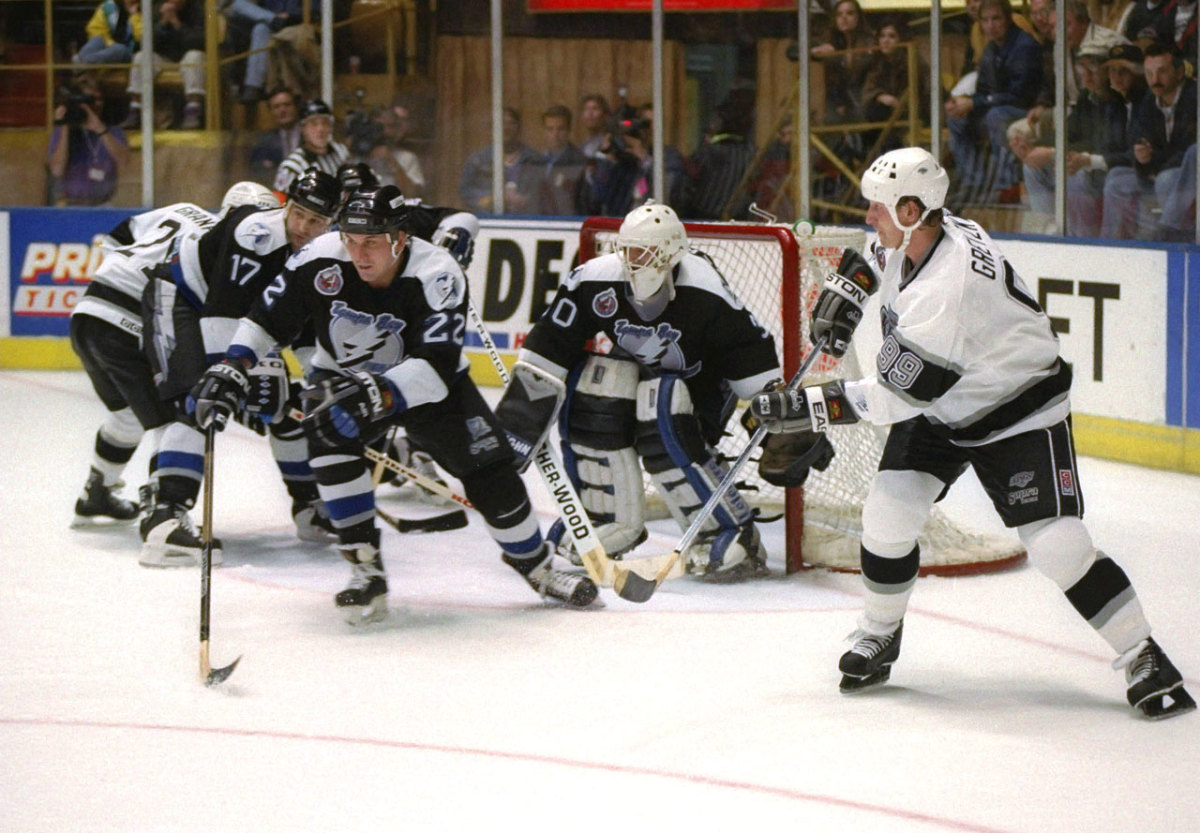
The NHL’s first foray into Florida, the franchise was awarded to an ownership group fronted by Hall of Famer Phil Esposito, who became GM and president. The Lightning played their first season in Tampa’s 11,000-seat Expo Hall at the Florida State Fairgrounds and later moved to the baseball-friendly Suncoast Dome. Dicey ownership and debt left the Bolts on the verge of being taken over by the NHL while they struggled to become a consistent playoff team. Financial losses and ownership changes have continued, but the team’s 2004 Stanley Cup win and recent return to competitiveness have helped keep the Bolts in place. All-time regular season record: 652-785-112-109; Postseason appearances: 7; Stanley Cups: 1
Mighty Ducks of Anaheim | 1993
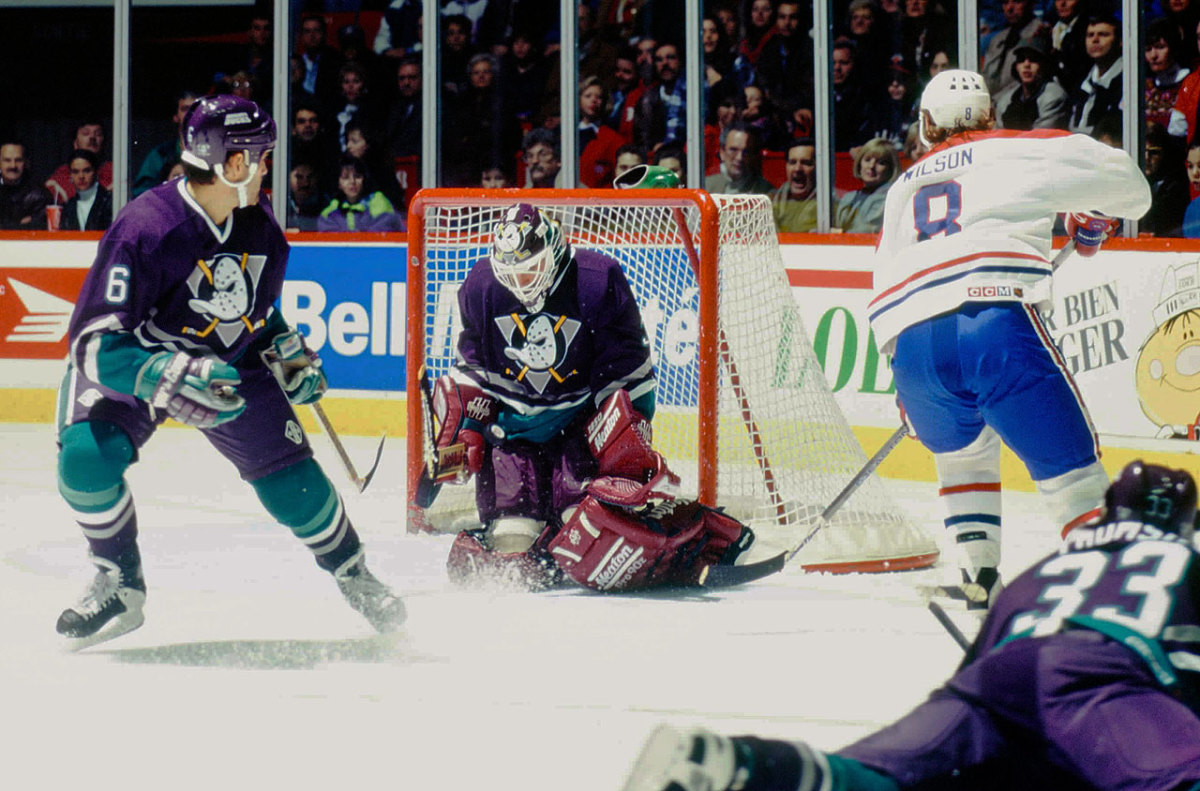
Awarded to The Walt Disney Company, their named based on a popular movie, the Ducks had a brand new arena and local rivalry with the LA Kings awaiting them. Since their very respectable 33-46-5 first season, they have enjoyed significant success, appearing in the Stanley Cup Final twice and, in 2007, becoming the first California-based NHL team to win the chalice. They remain blessed with solid ownership and a roster that is considered a solid Cup contender. All-time regular-season record: 722-637-107-108; Postseason appearances: 10; Stanley Cups: 1
Florida Panthers | 1993
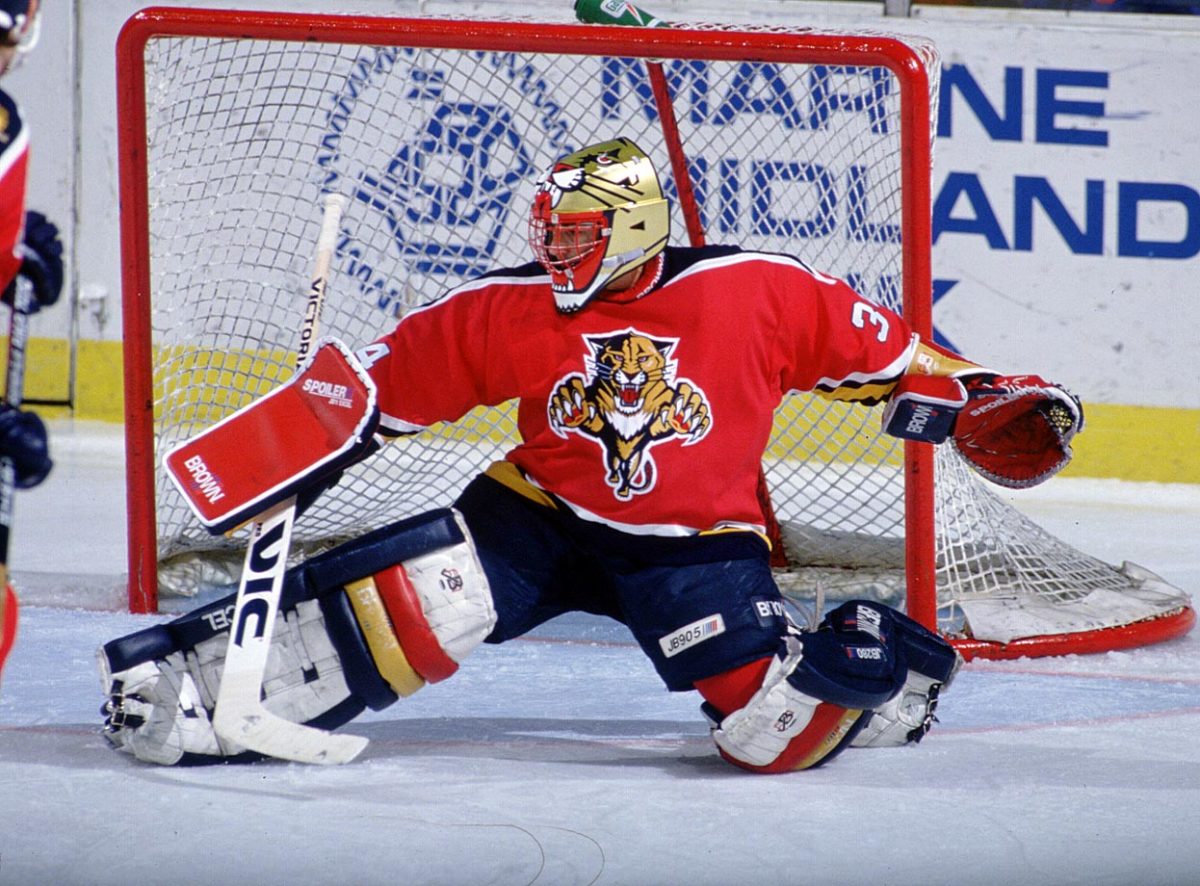
The second franchise to set up shop in Florida has battled long stretches of mediocrity, poor management, and the Miami area’s stiff competition for entertainment dollars. One of the few bright spots: a surprise trip to the 1996 Stanley Cup Final by a team assembled by Bill Torrey, the architect of the Islanders dynasty. But Florida’s new owners, who claim to be losing $30 million per year, have decried the team’s business model as “not sustainable” and are seeking more tax revenue from Broward County. No wonder the Panthers are often considered ripe for relocation. All-time regular season record: 617-677-142-138; Postseason appearances: 4; Stanley Cups: 0
Nashville Predators | 1998
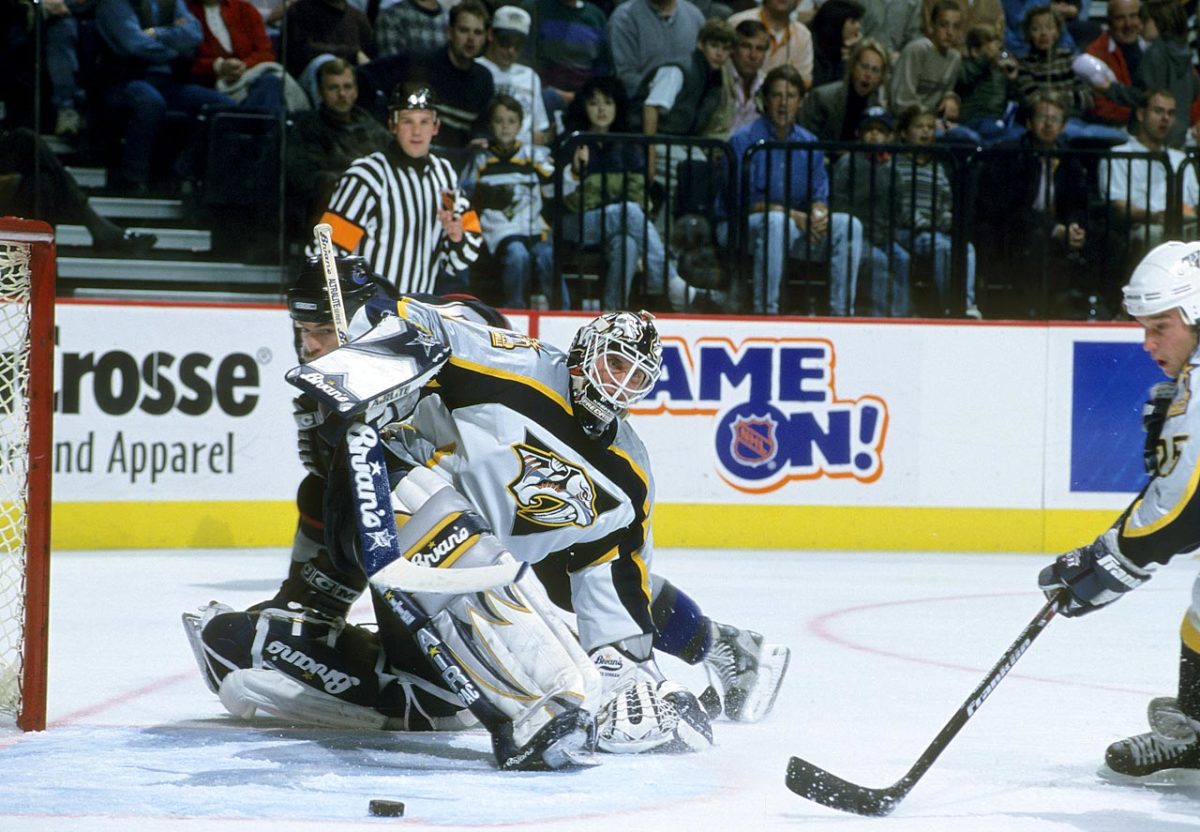
Thanks in part to a new arena and the city’s failure to lure the Devils from New Jersey, Nashville was awarded a new franchise in an expansion surge that saw the NHL also plant teams in Atlanta, Columbus, and Minneapolis-St. Paul. The Predators were the first of them to take the ice and the ensuing years have seen a string of steady if unremarkable teams, relocation rumors, ownership change and controversy (Boots Del Biaggio’s bankruptcy and fraud conviction), and attempts to drum up fan support. But the Preds continue to hang in there. All-time regular season record: 557-479-60-100; Playoff appearances: 7; Stanley Cups: 0
Atlanta Thrashers | 1999
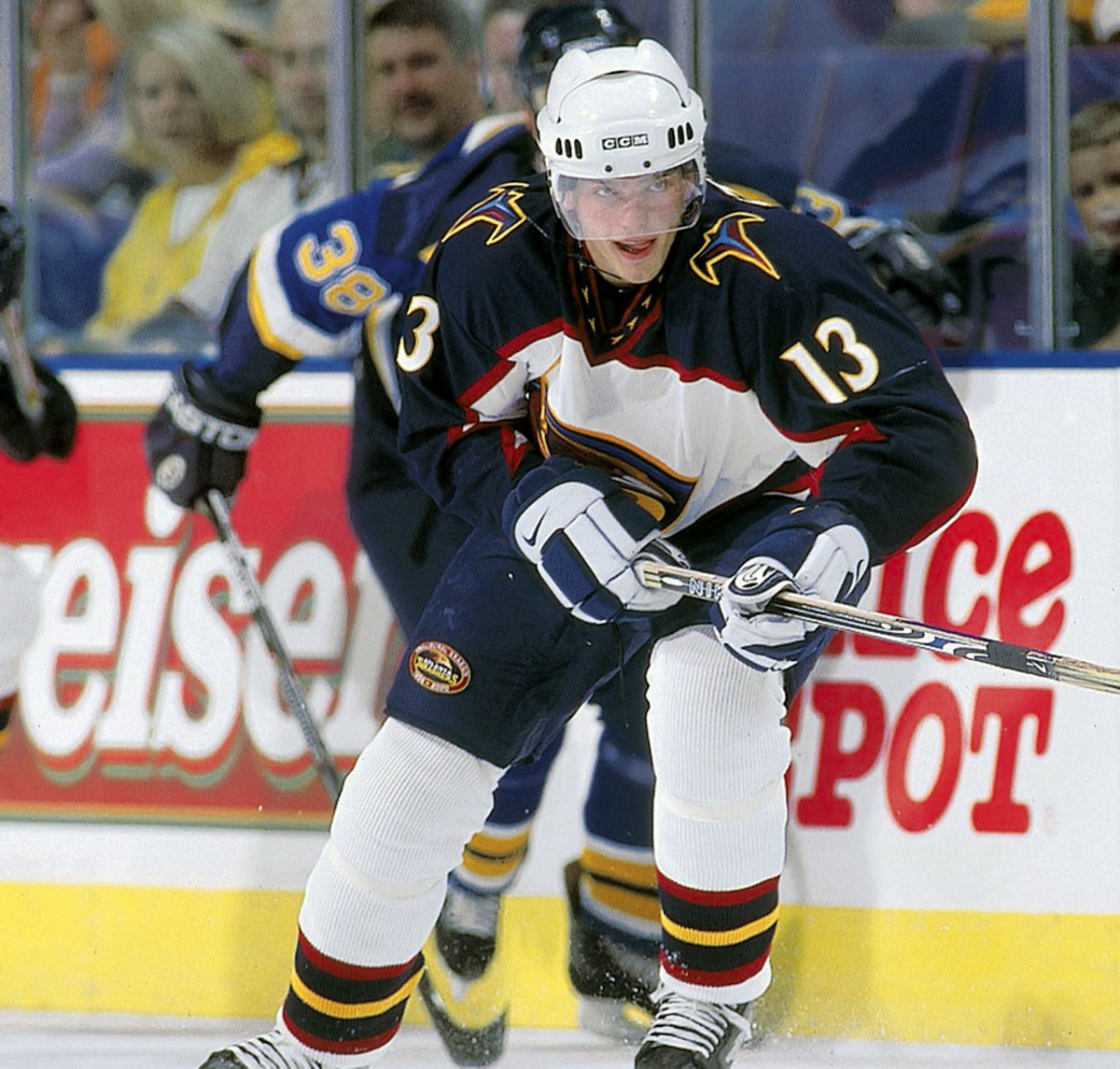
The NHL’s return to Atlanta went no better than its first go-round with the Flames. Cursed by poor management, consistent mediocrity, and an understandably apathetic fan base, the second team to take the ice in the NHL’s most recent expansion surge managed to make the playoffs only once in 11 seasons before being sold. The new group moved the team to Winnipeg, where it was warmly received and renamed the Jets. However, the team remains consistently mediocre and the question now is how long the honeymoon will last. All-time regular season record: 440-528-45-101; Playoff appearances: 1; Stanley Cups: 0
Columbus Blue Jackets | 2000
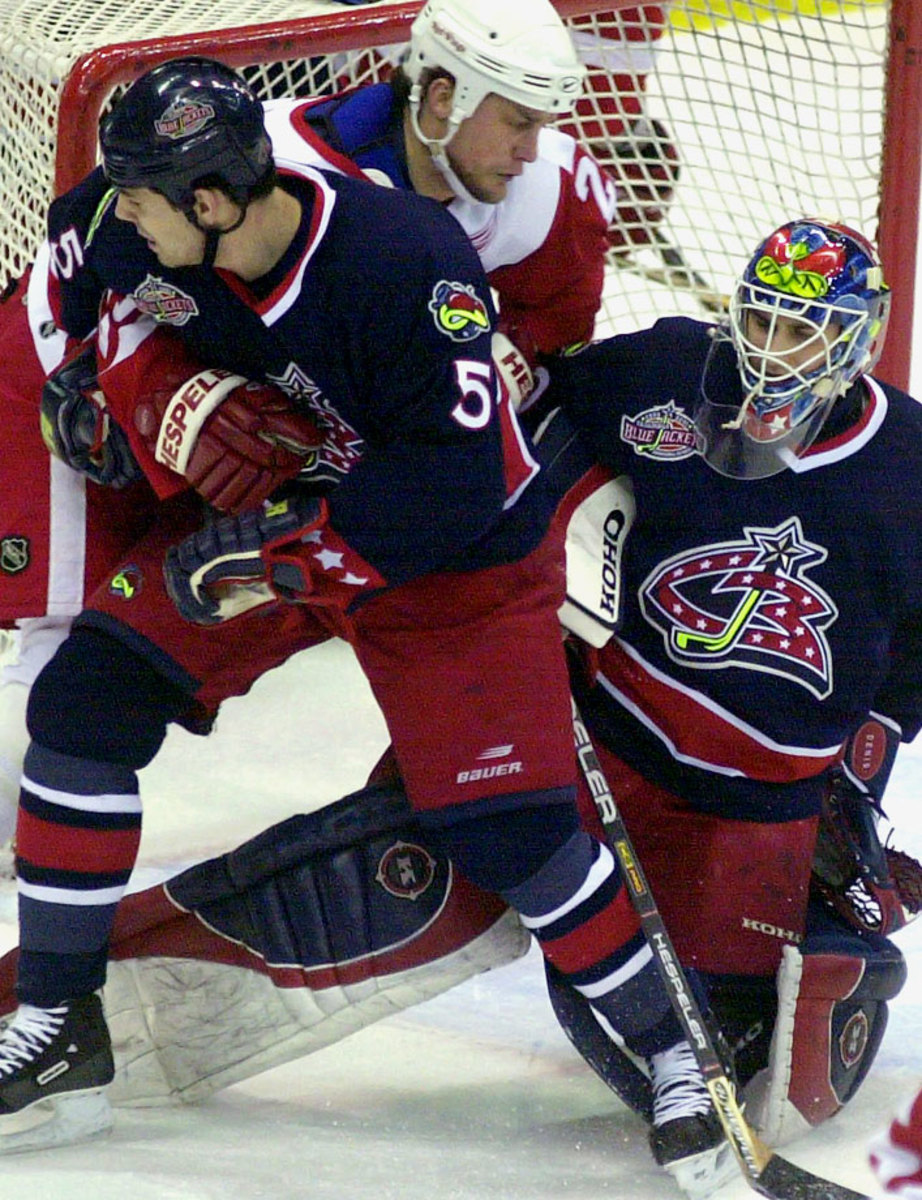
An arena issue forced Columbus into a battle to acquire what is now the NHL’s least valuable franchise ($175 million, according to Forbes). During their history, the Blue Jackets have been consistently non-descript, frequently lacking star power and suffering from poor management. Their fortunes are looking brighter due to the arrival in the past year of savvy hockey ops president John Davidson and respected GM Jarmo Kekalainen. All-time regular season record: 409-490-33-100; Playoff appearances: 2; Stanley Cups: 0
Minnesota Wild | 2000
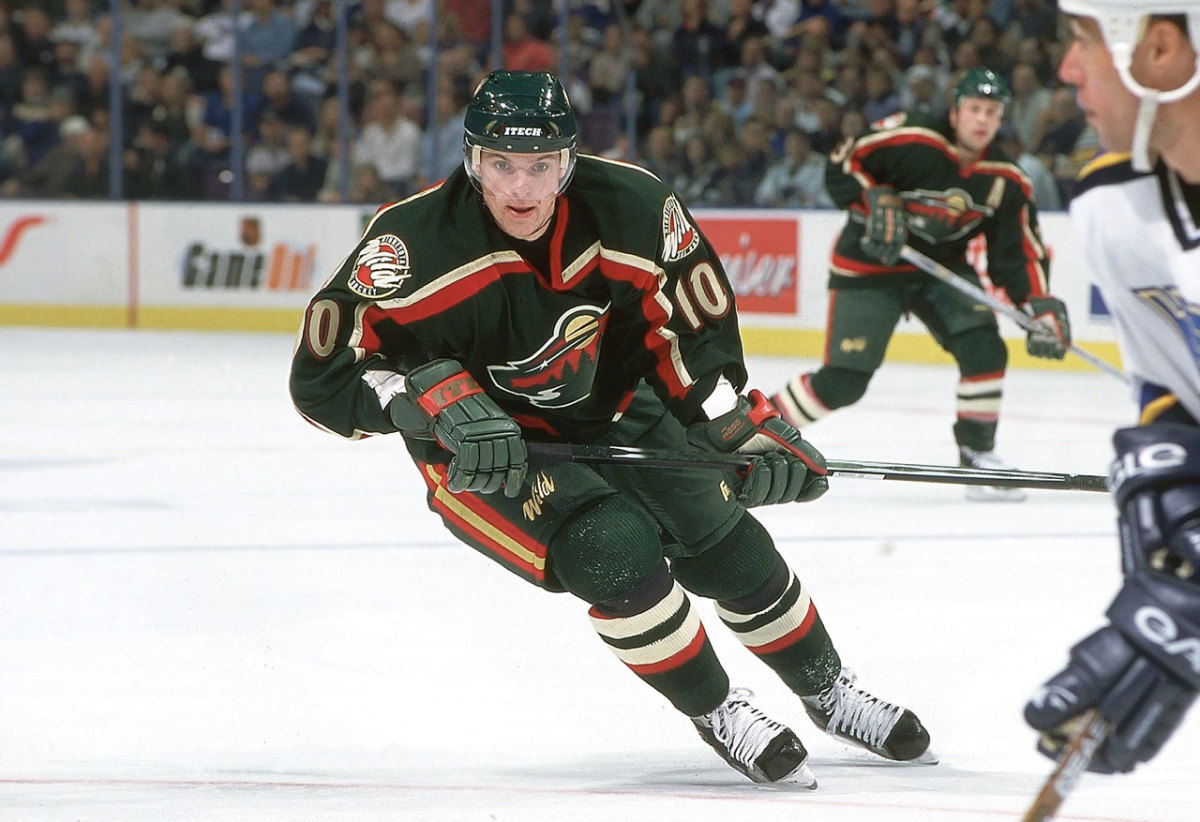
The league’s youngest expansion team took the ice three years after it was awarded in the NHL’s second stab at sticking in Minnesota. Now owned by a group led by Craig Leipold, who bought the Wild after selling the Predators in 2007, the Wild has struggled to make consistent postseason appearances. The high-priced additions of free agent stars Zach Parise and Ryan Suter in 2012 have spearheaded some marked improvement, as evidenced by the Wild’s upset of Colorado in the first round of the 2014 playoffs, but the team has yet to reach the conference final. Even so, its future in Minneapolis-St. Paul is hardly in doubt. All-time regular season record: 474-408-55-95; Playoff appearances: 5; Stanley Cups: 0
